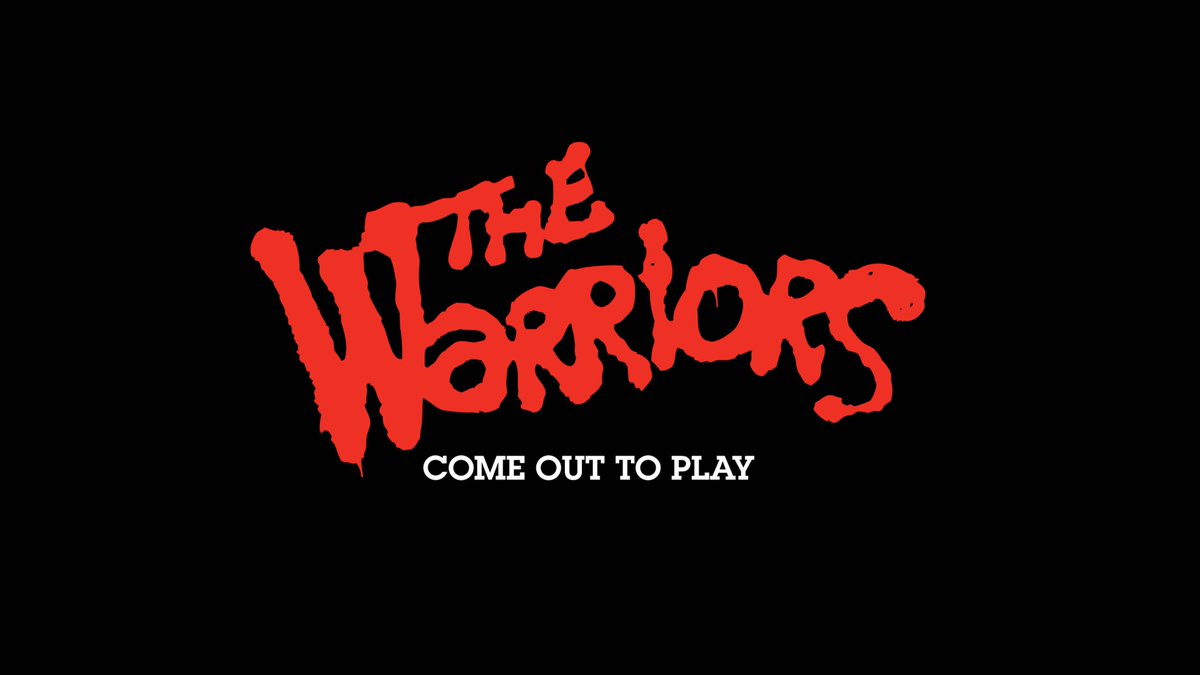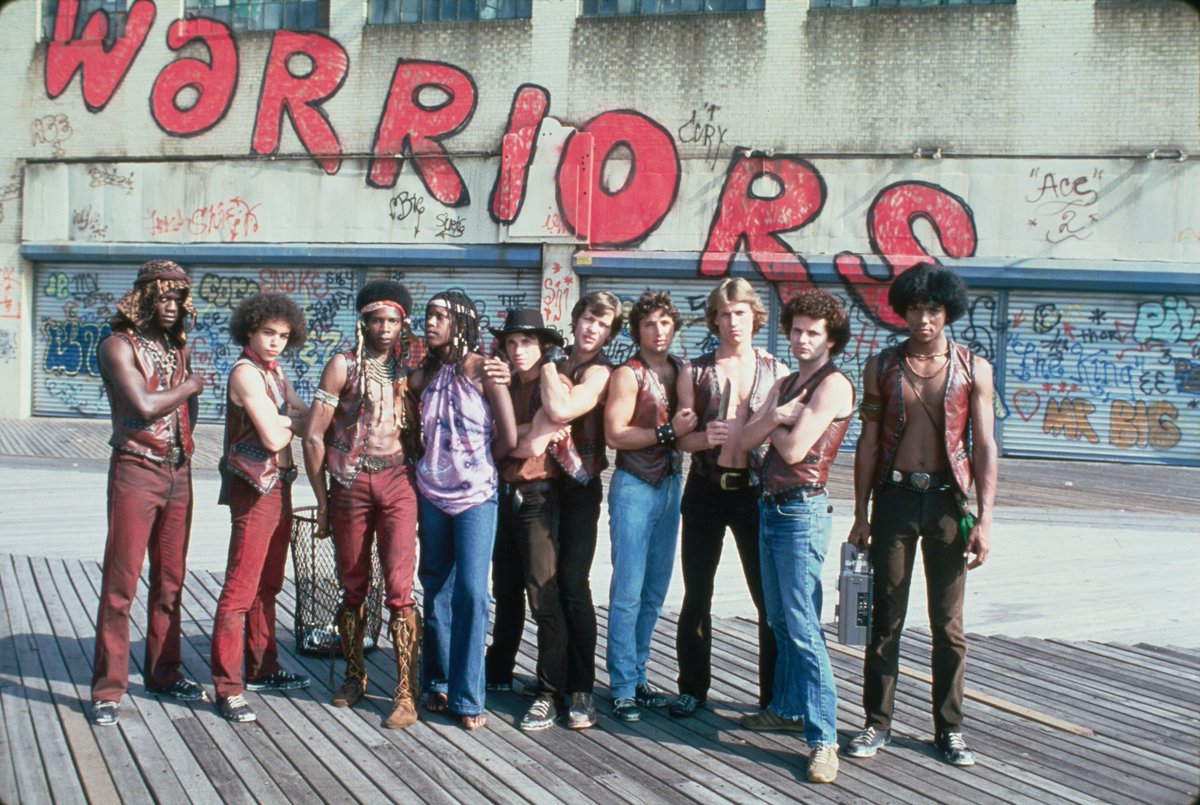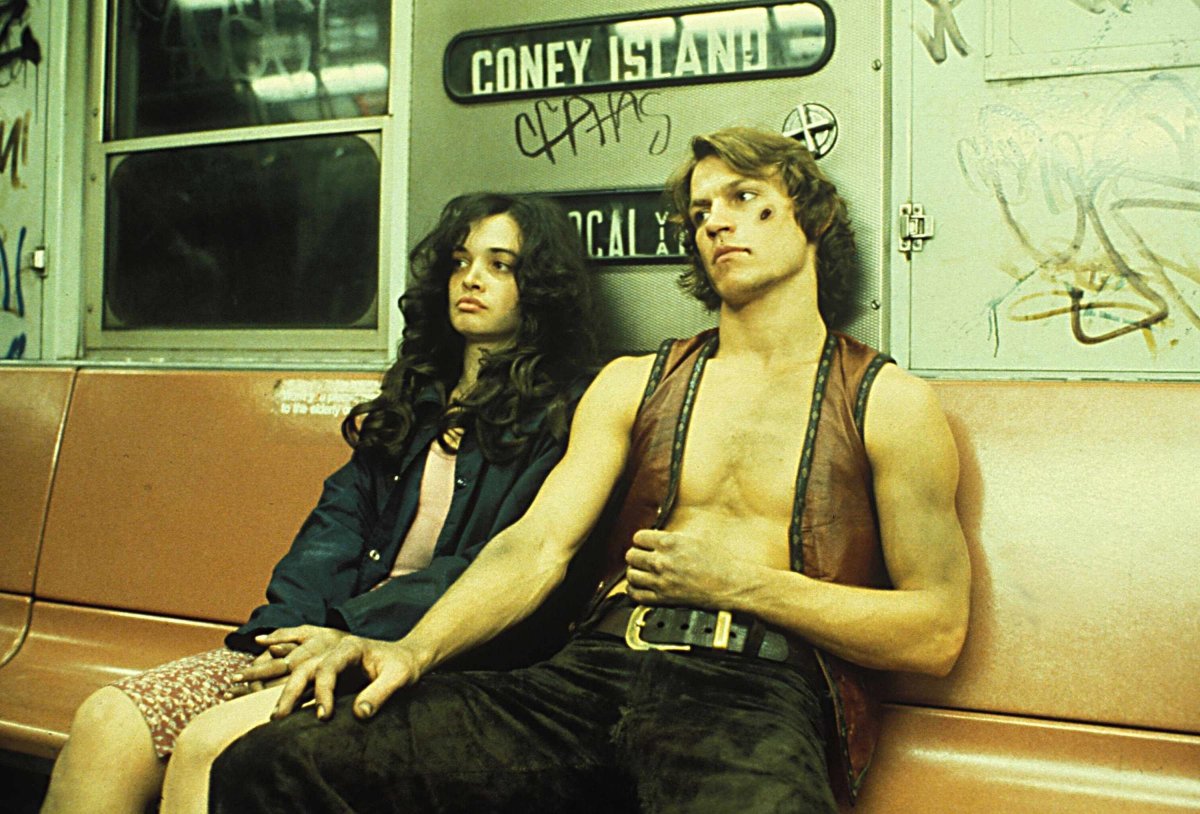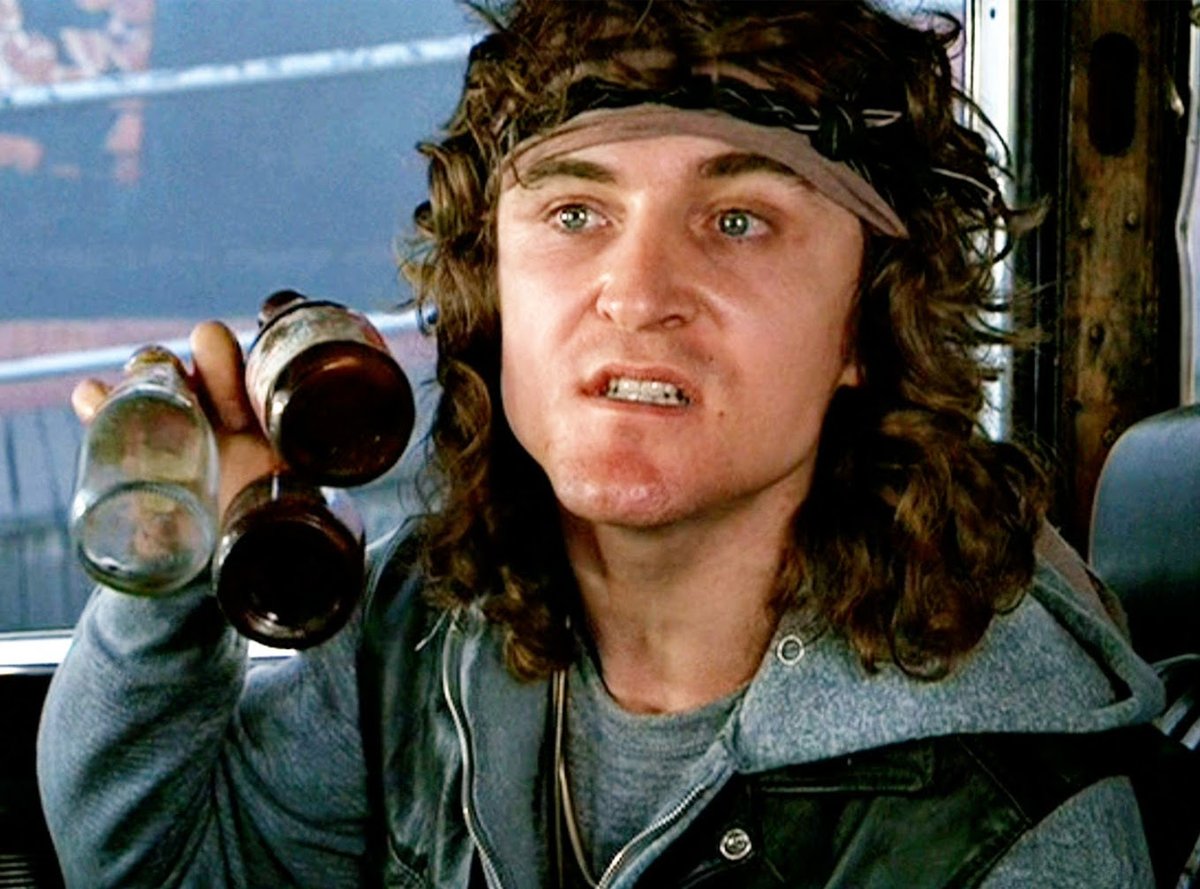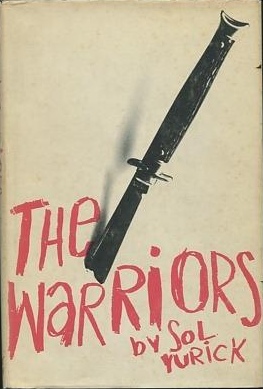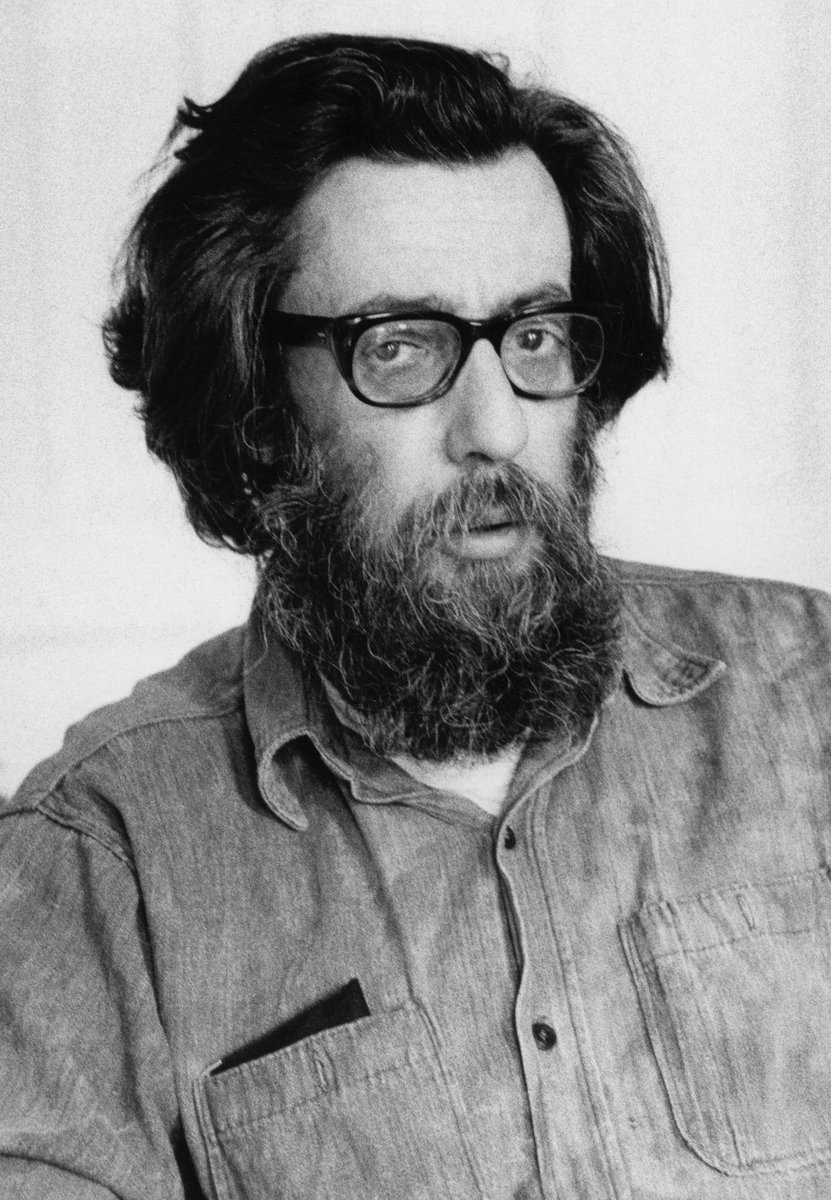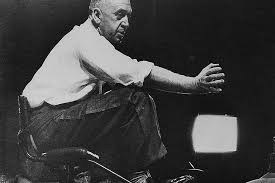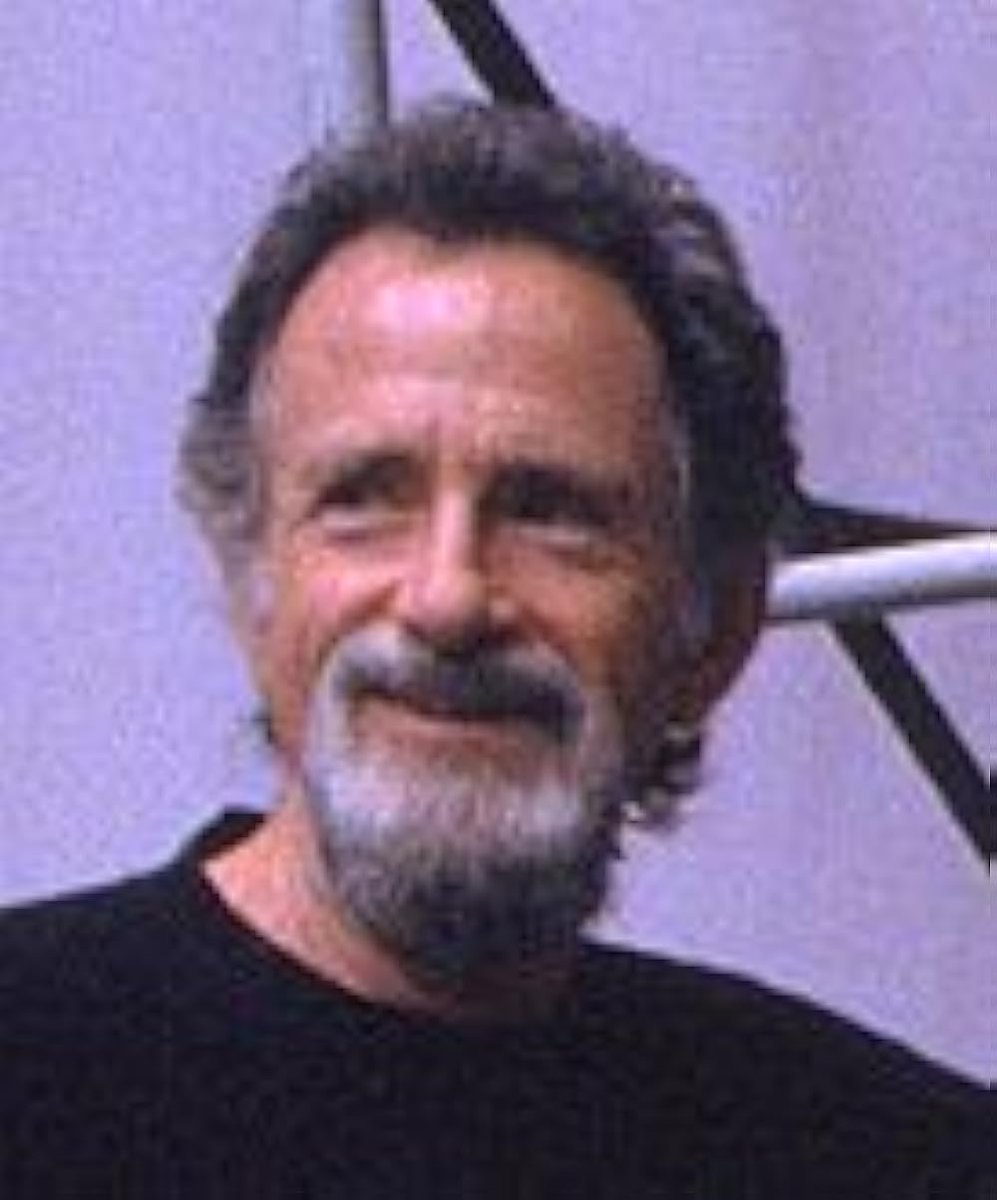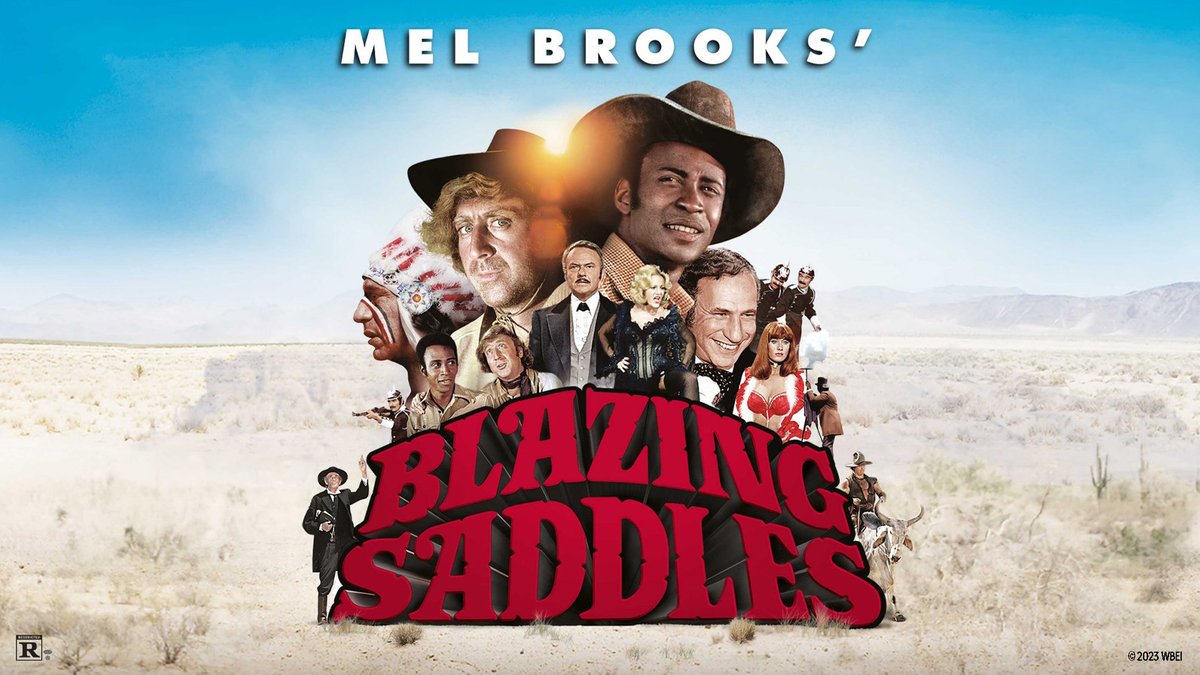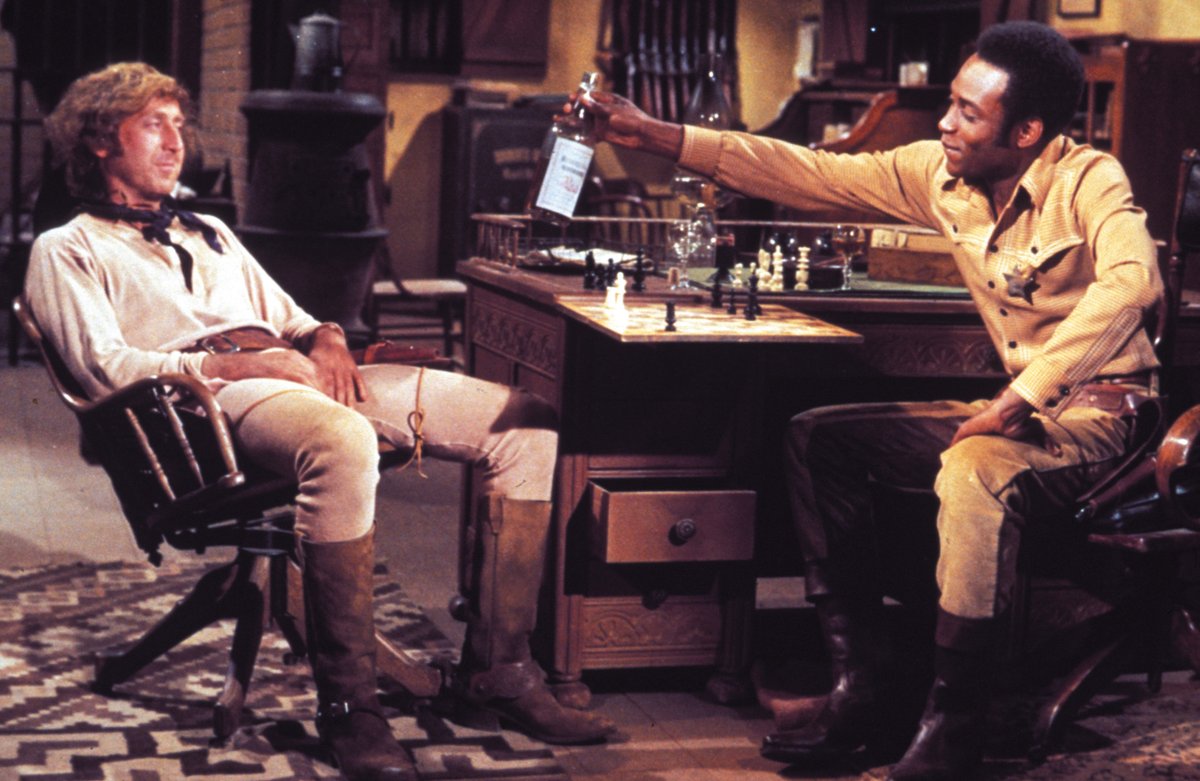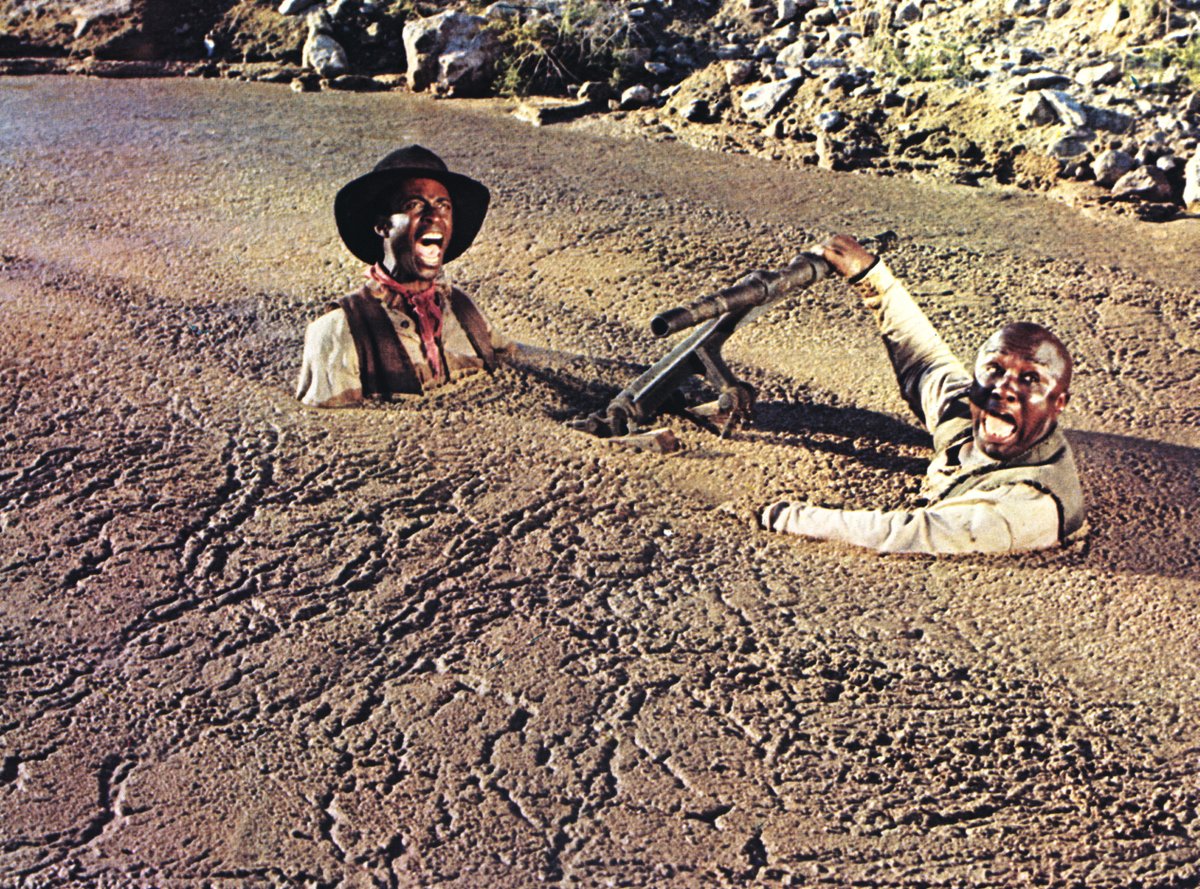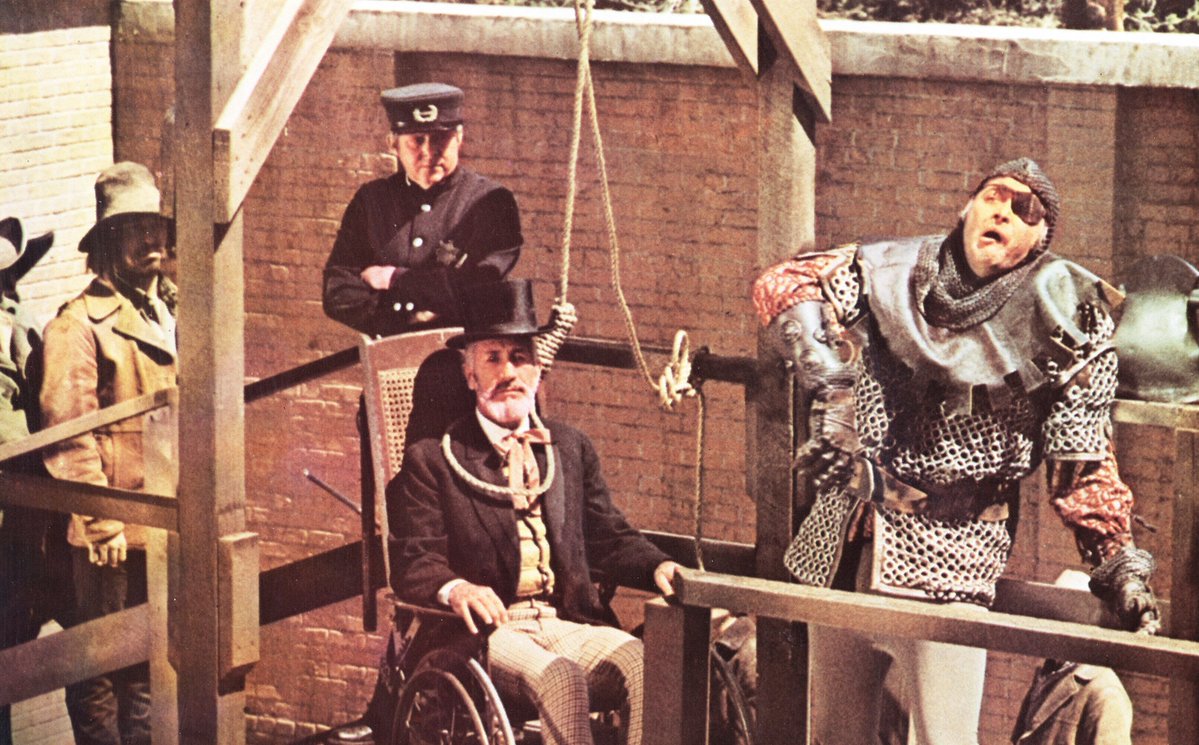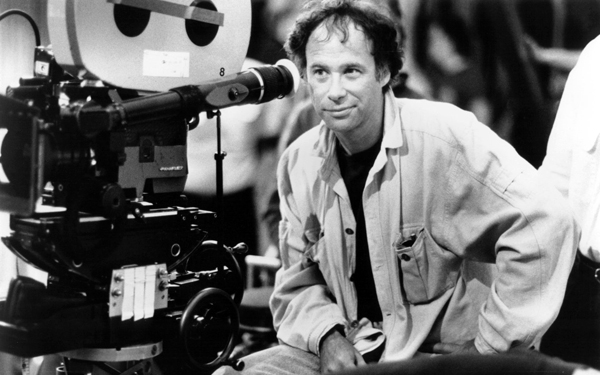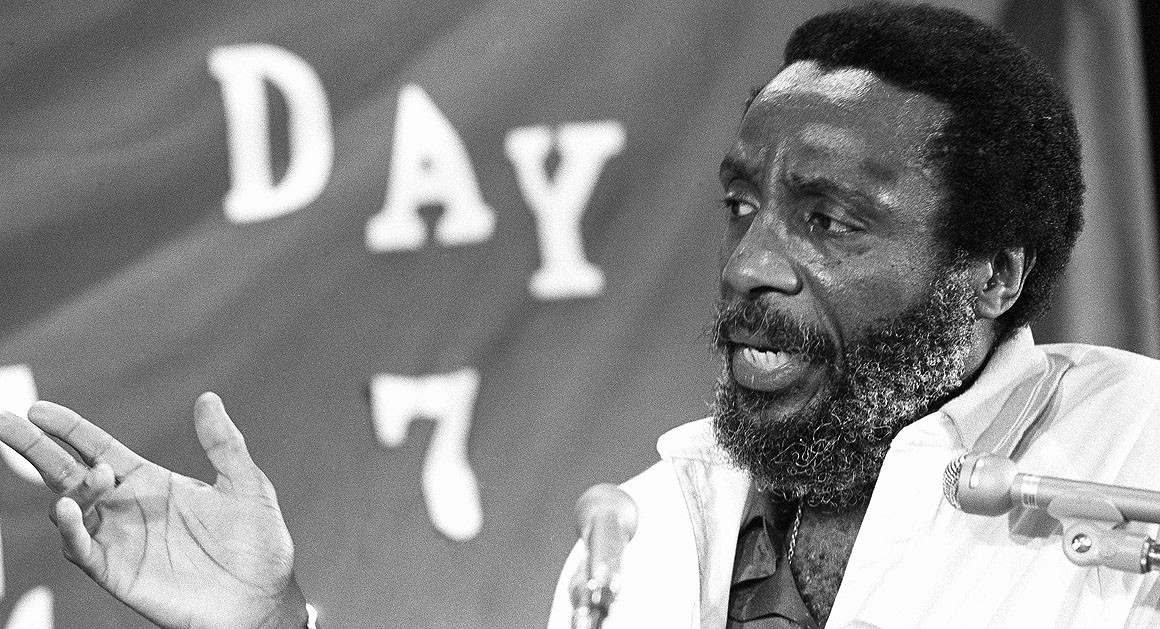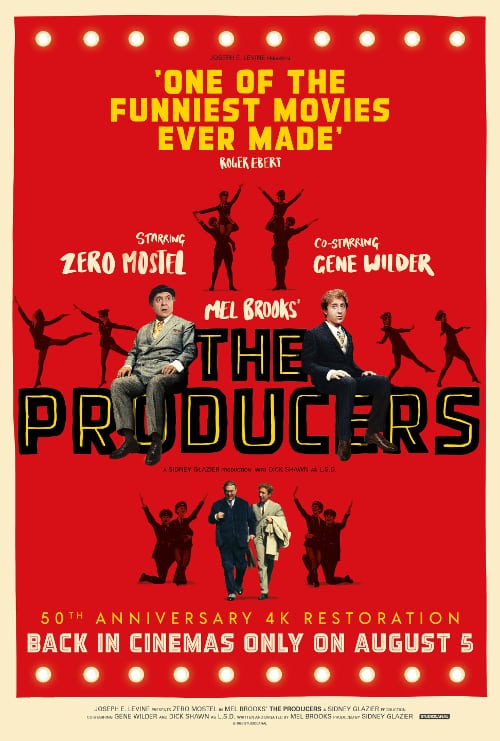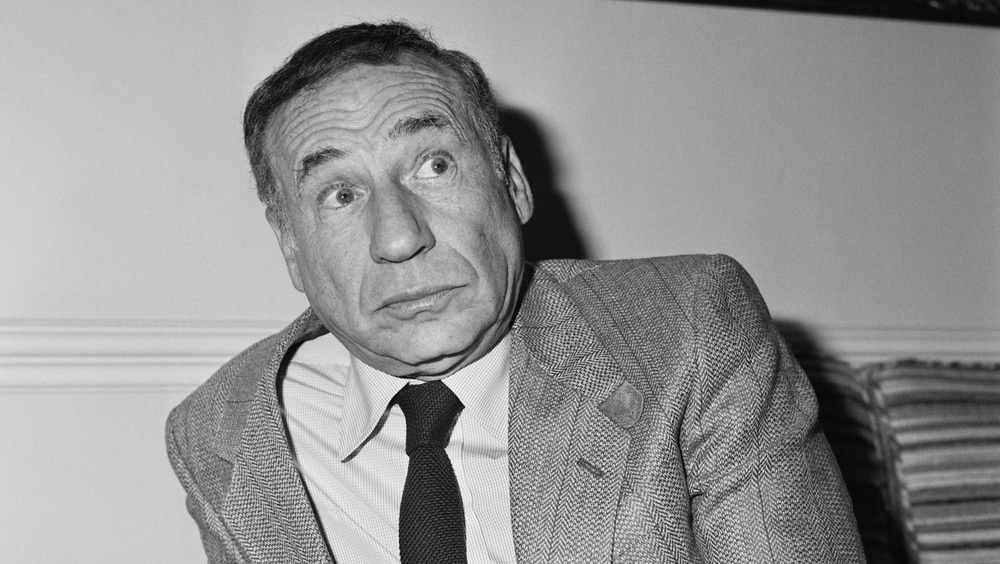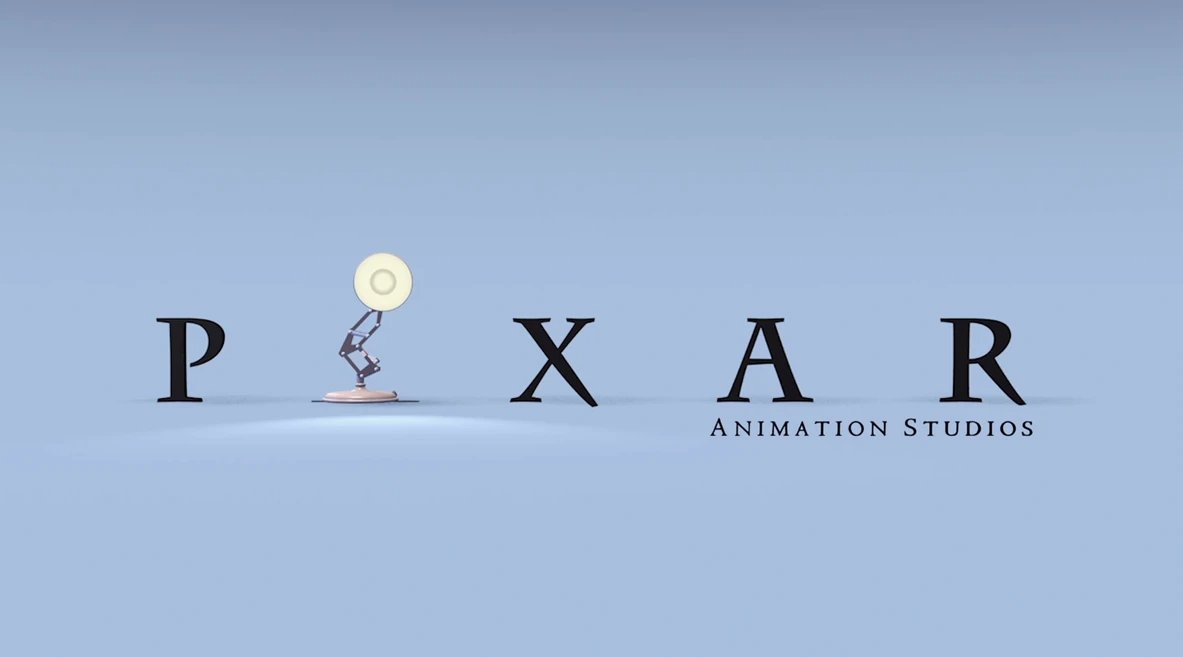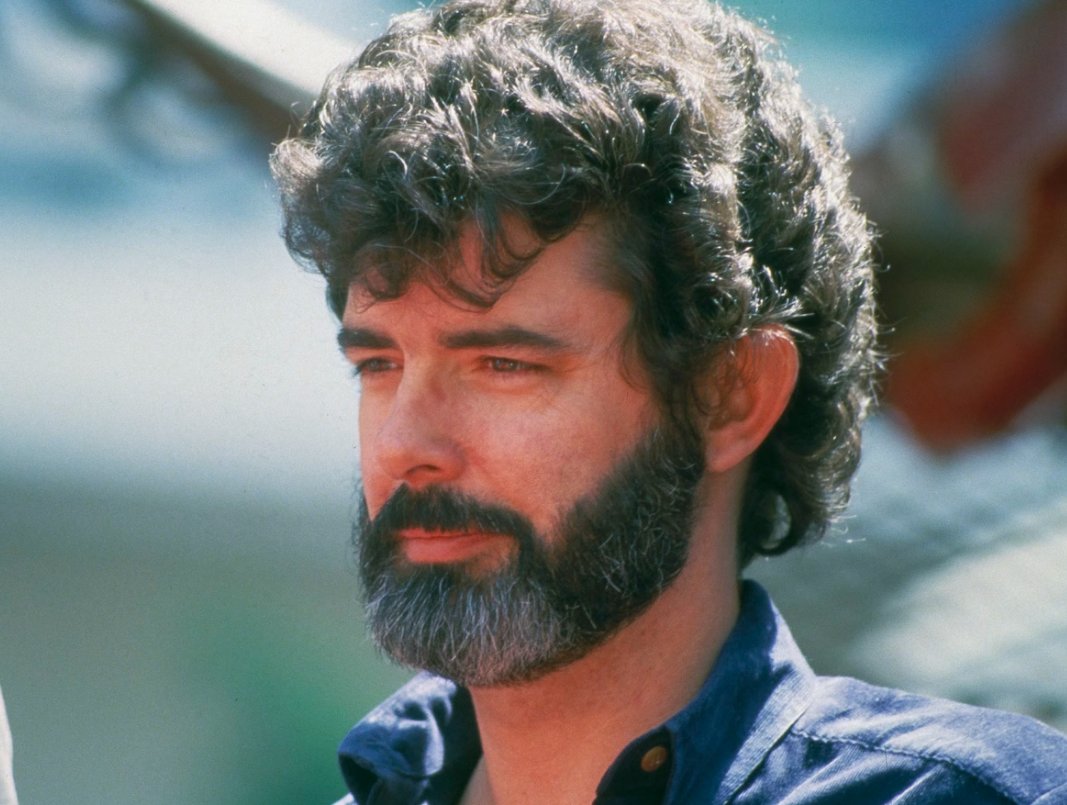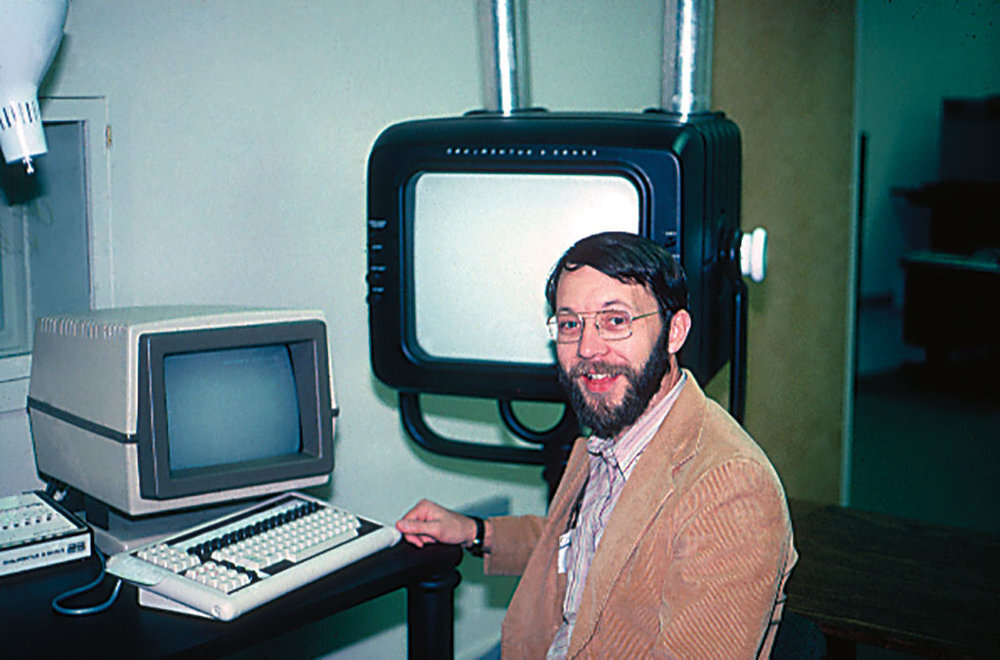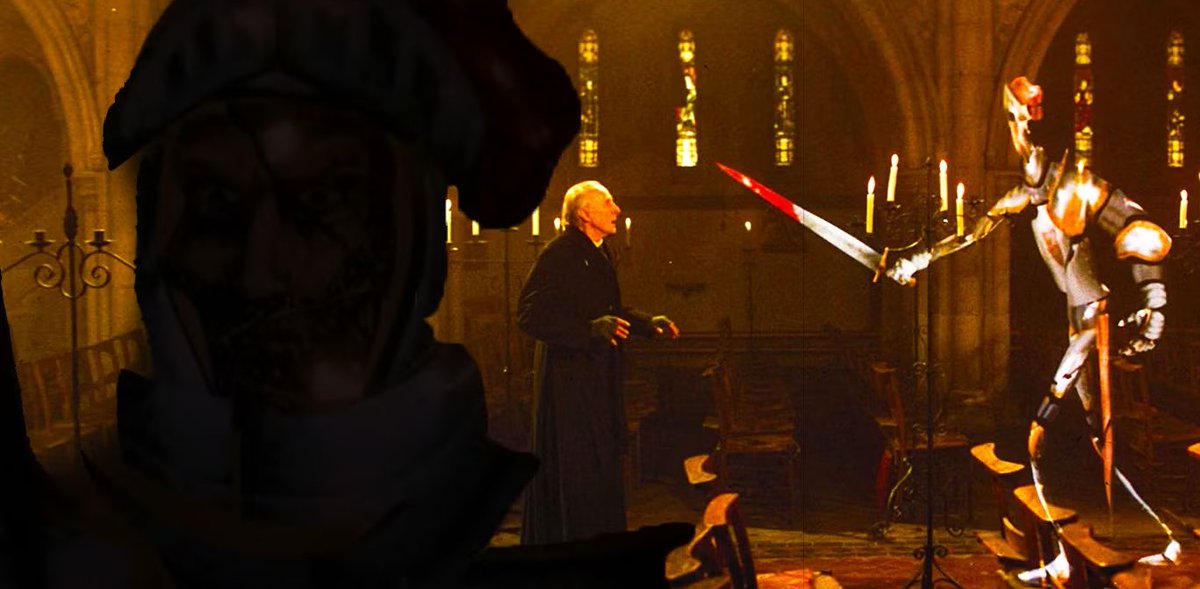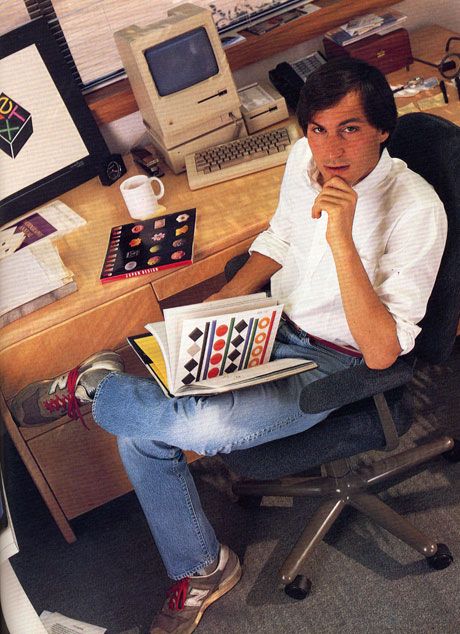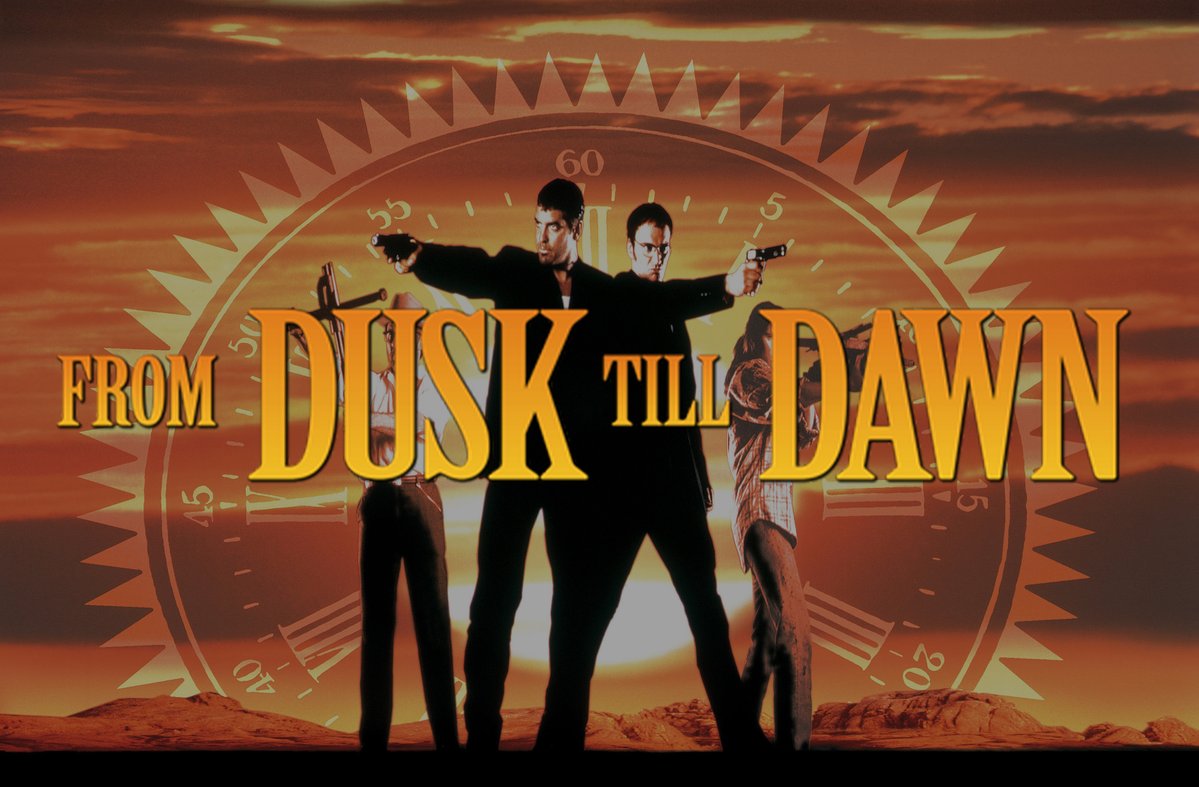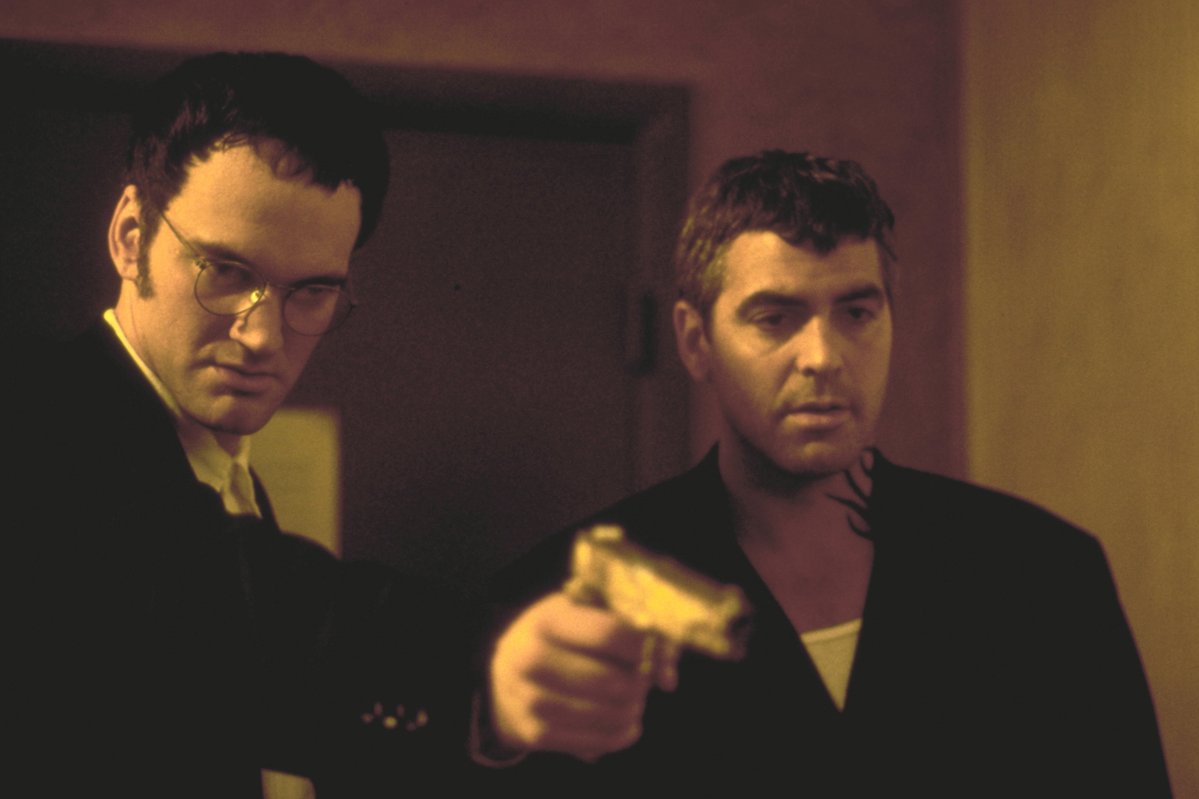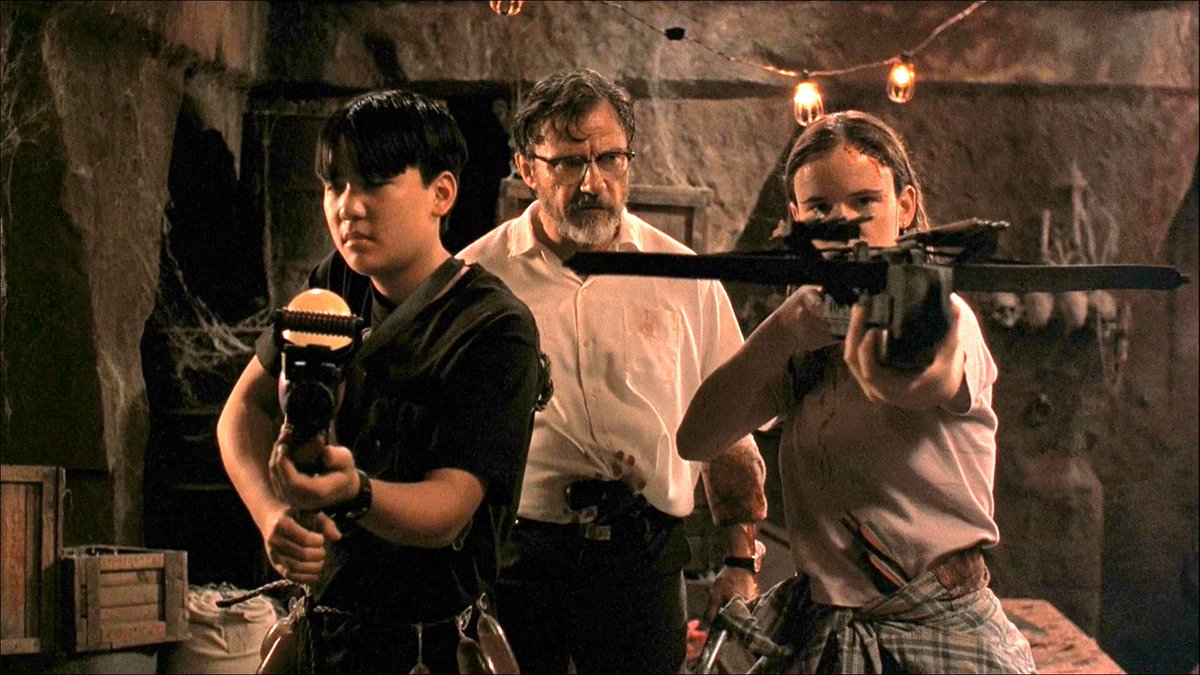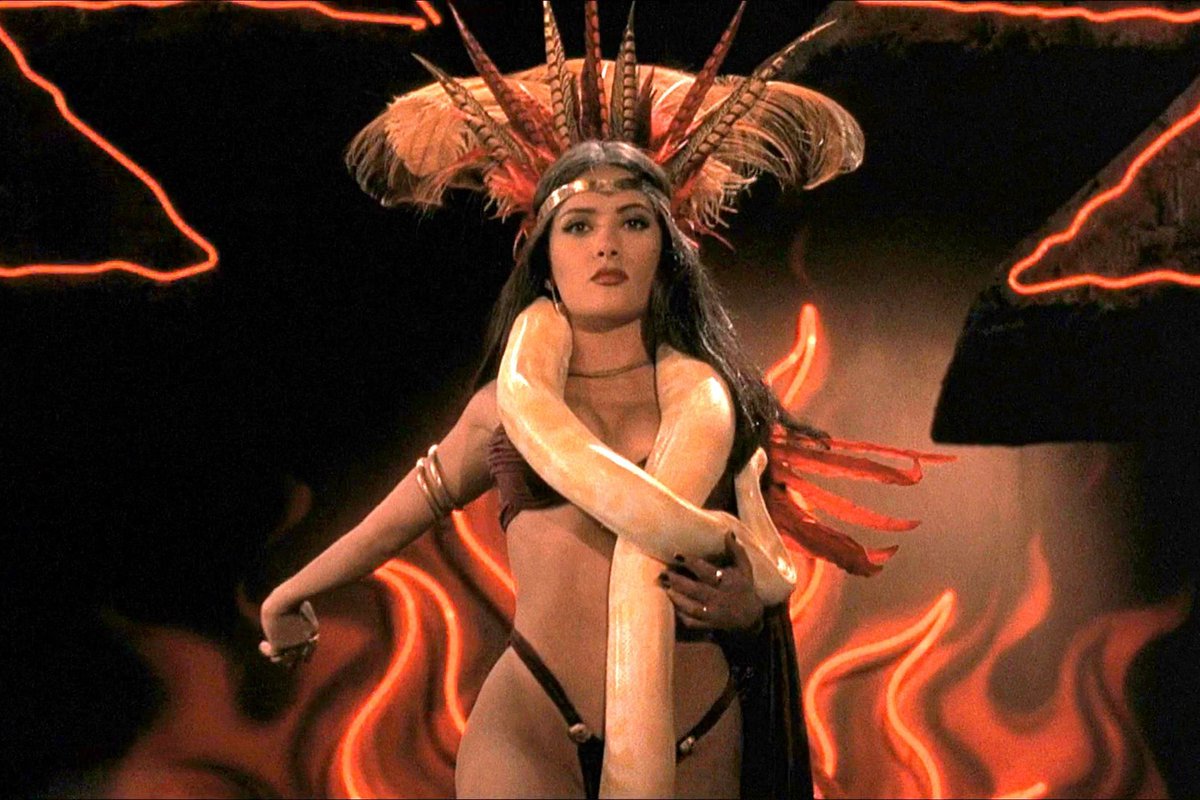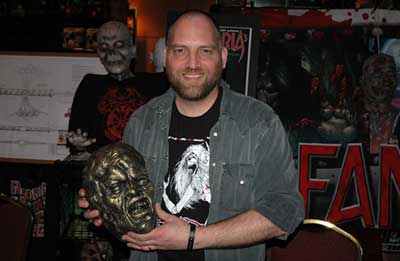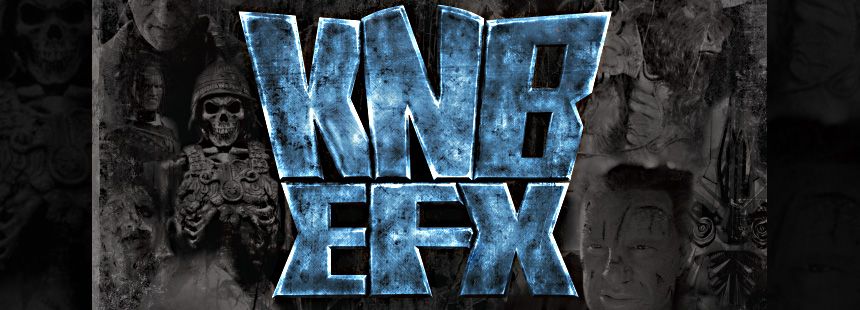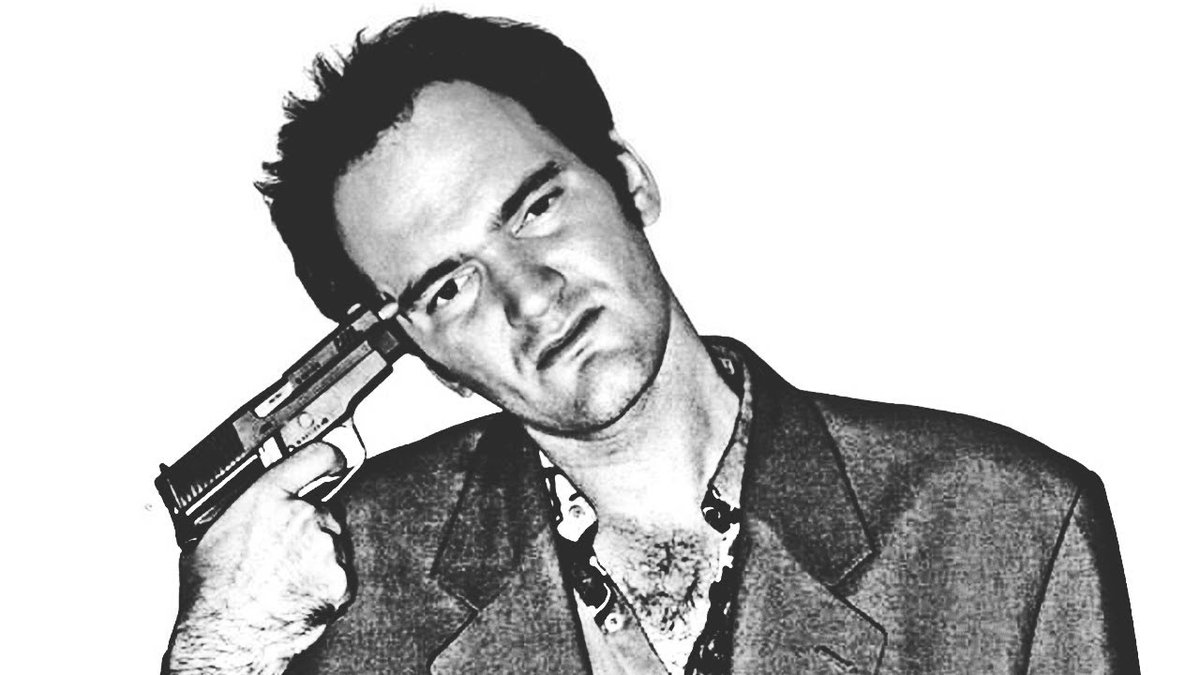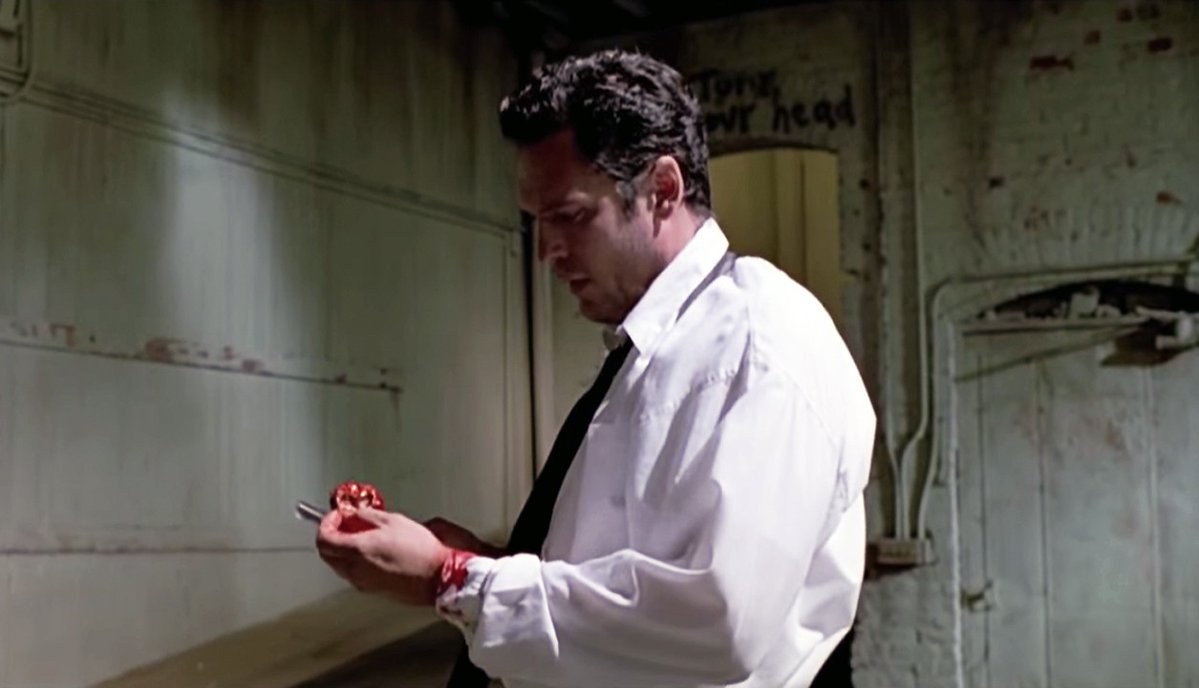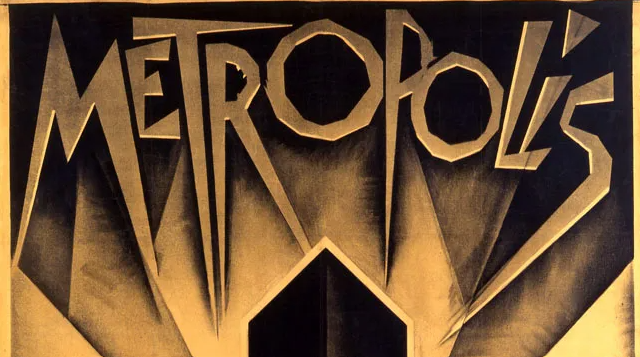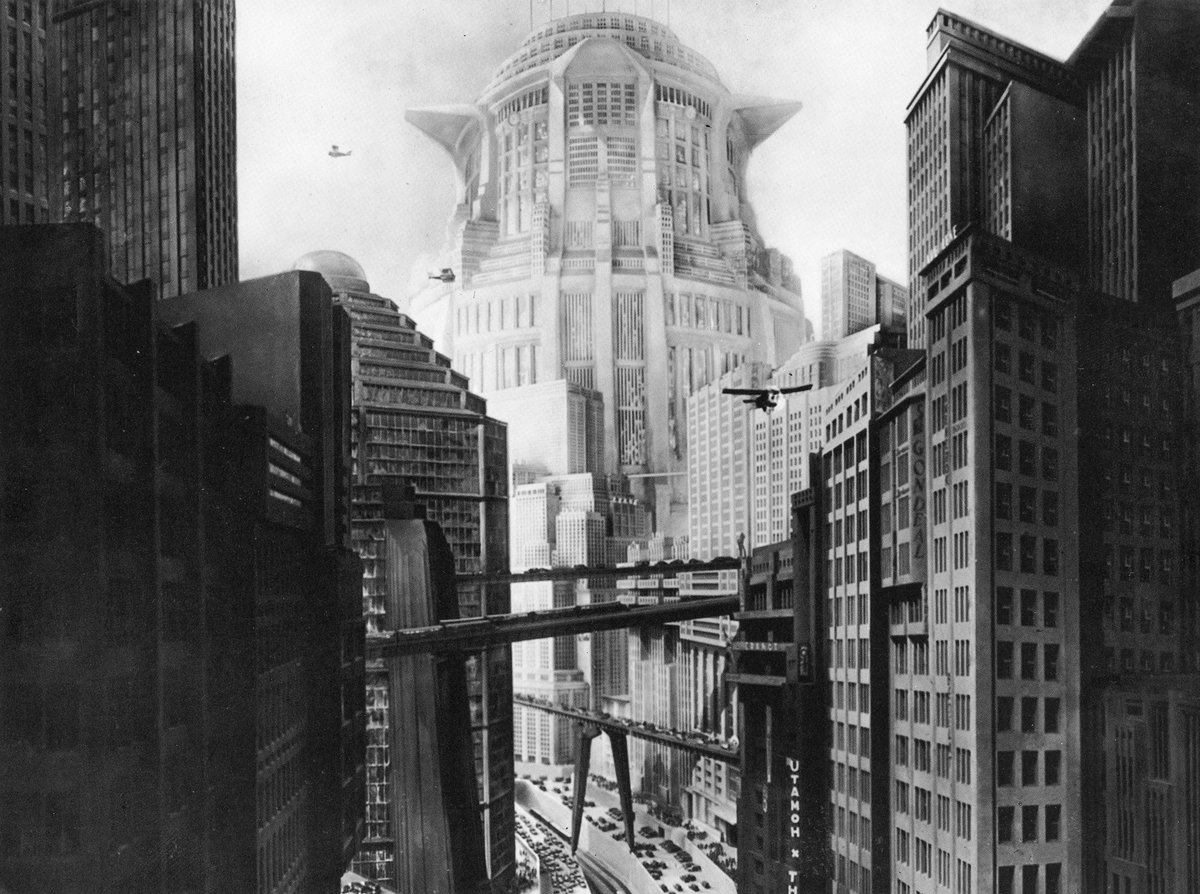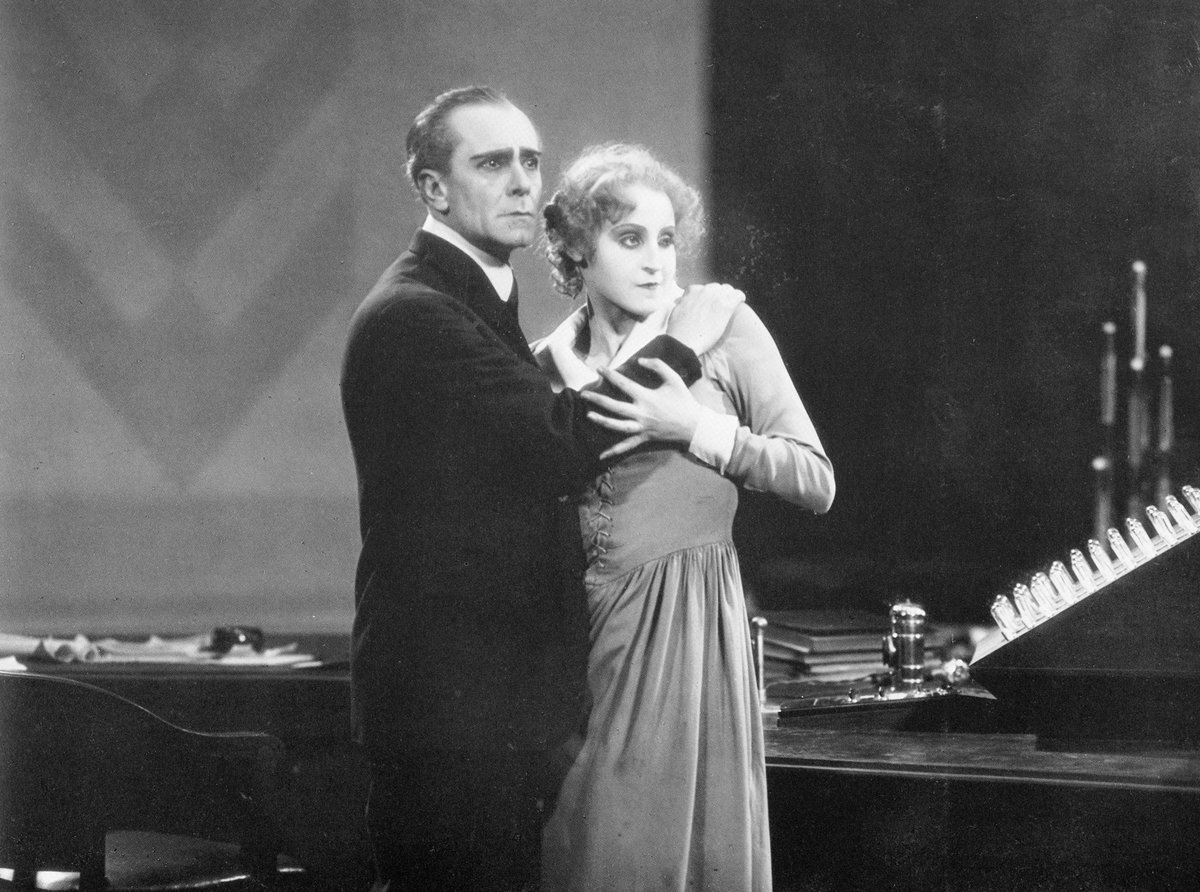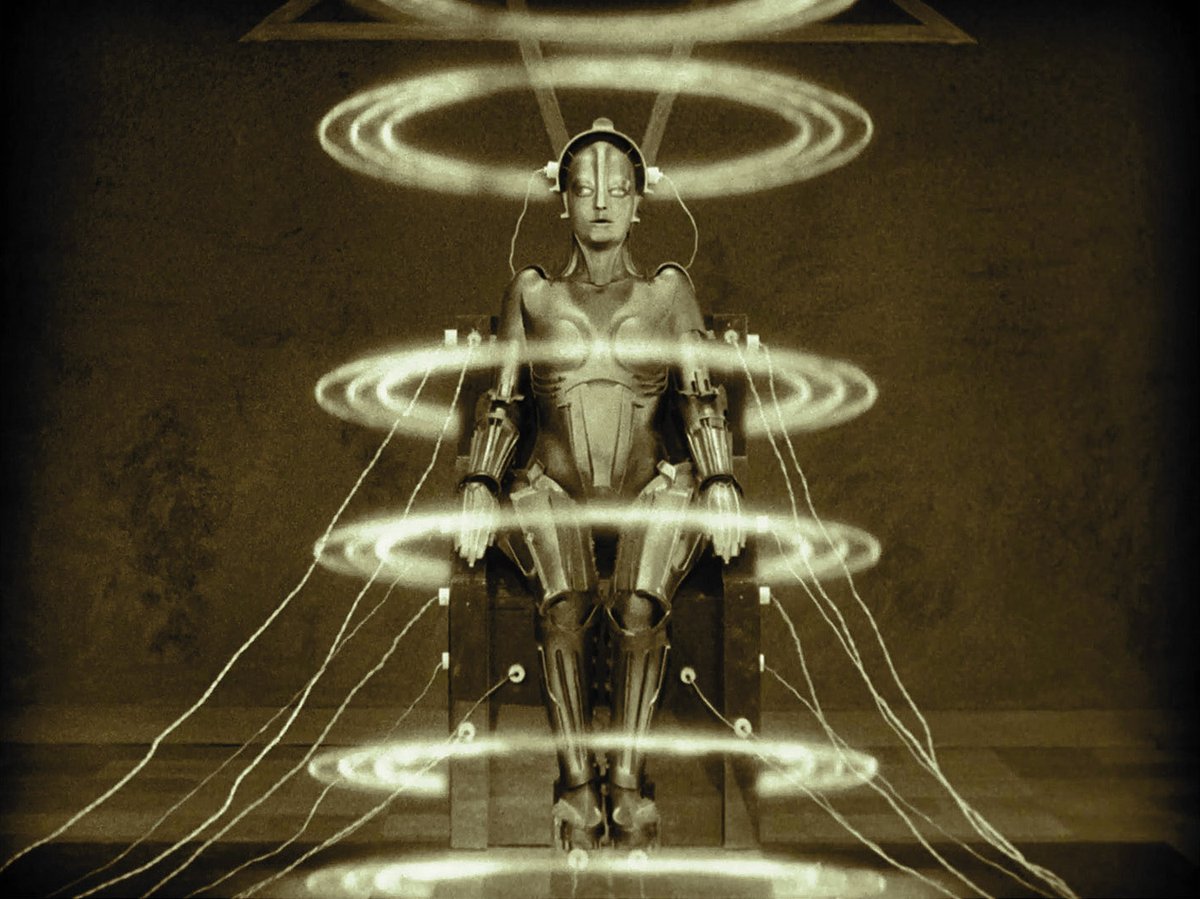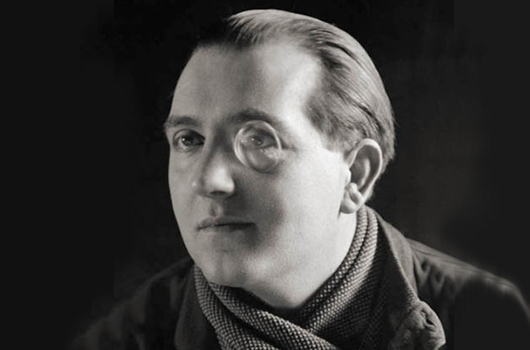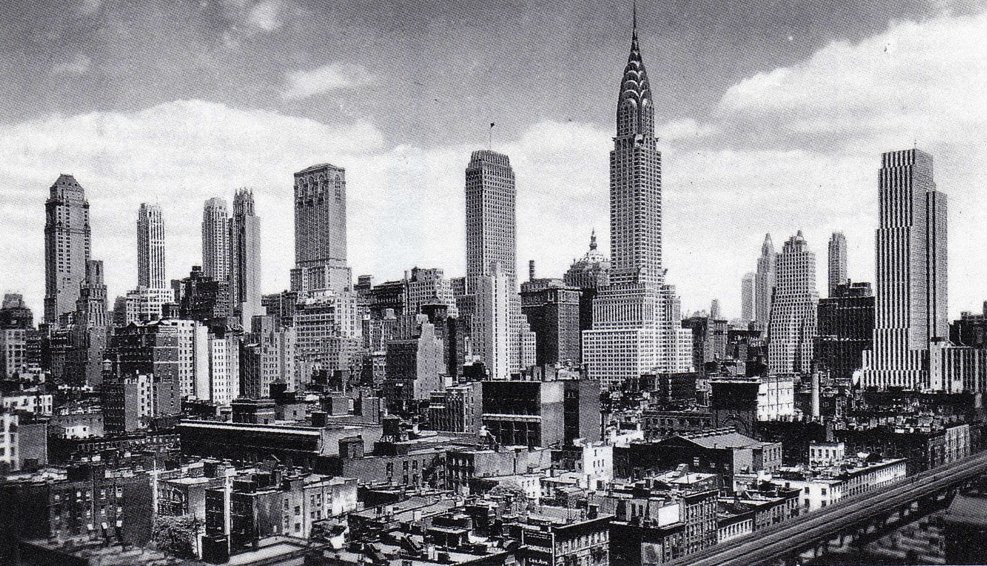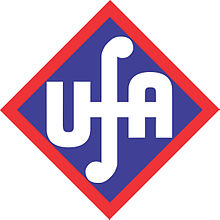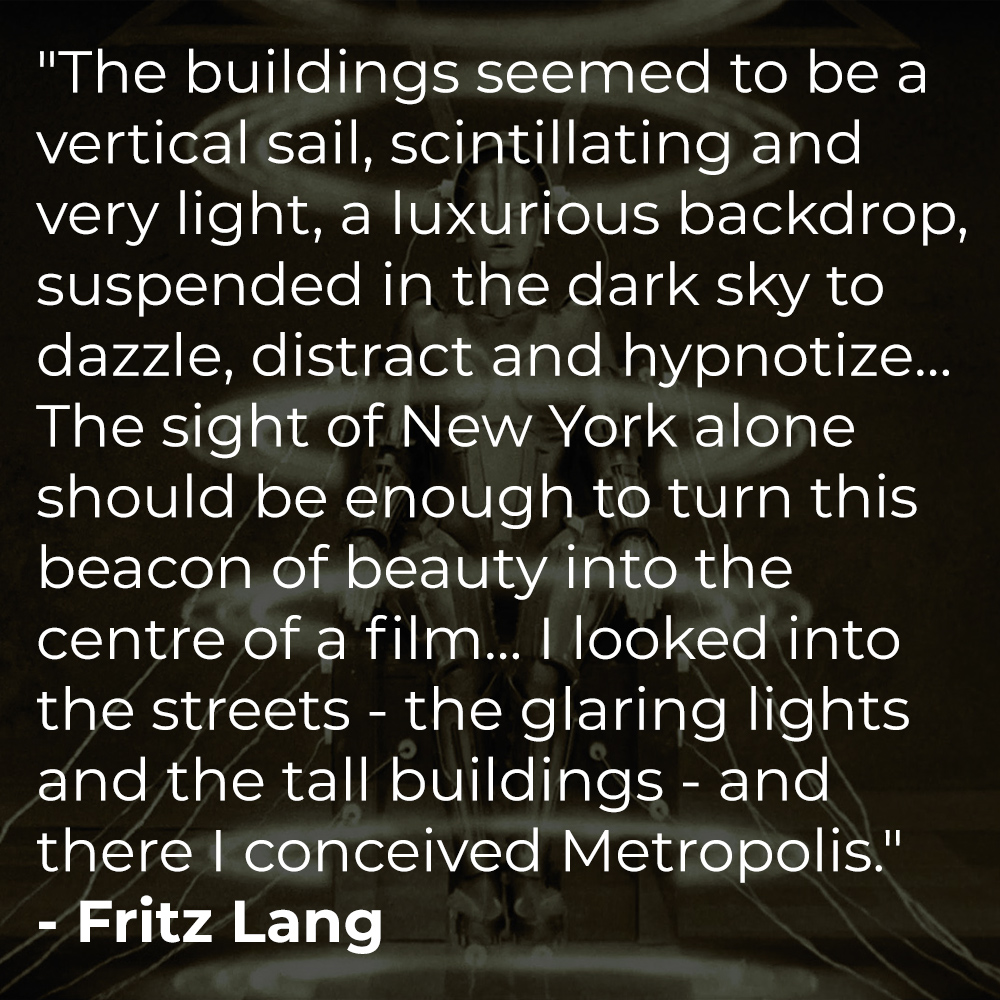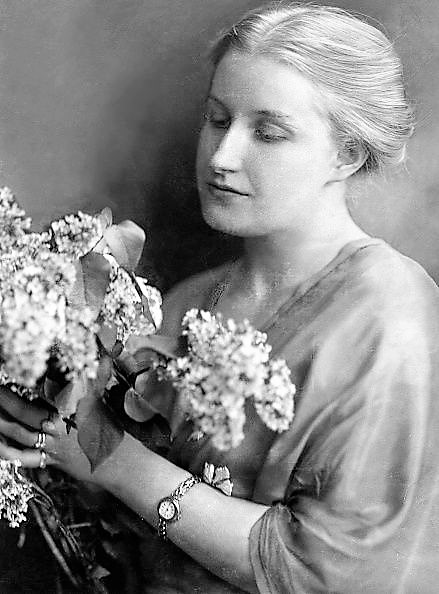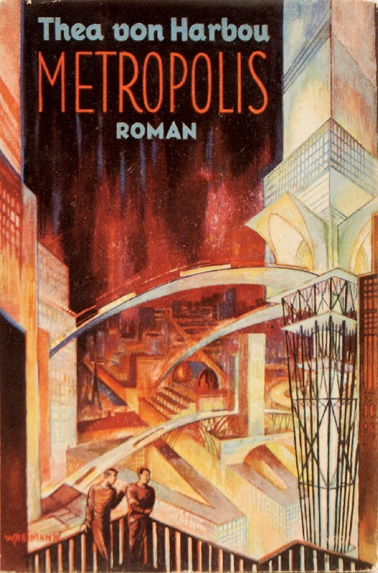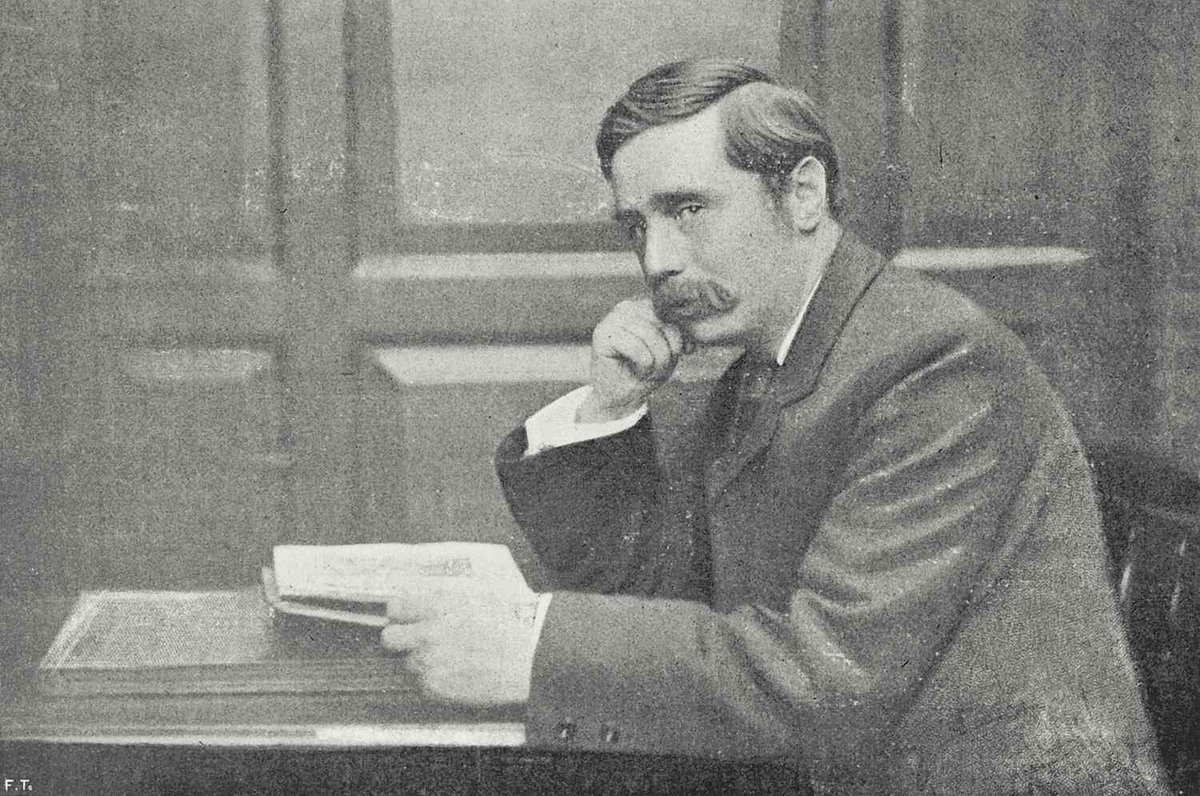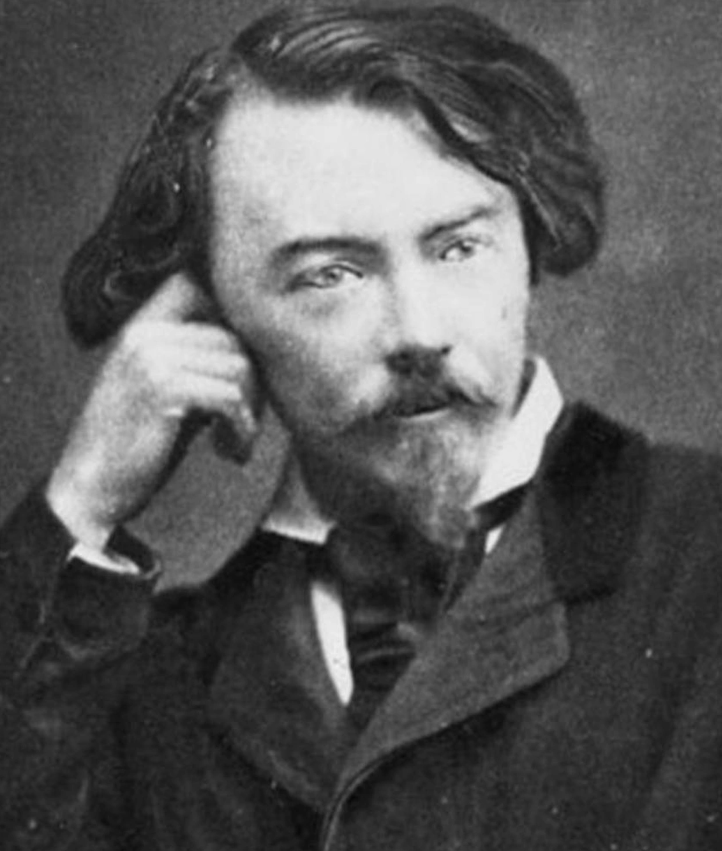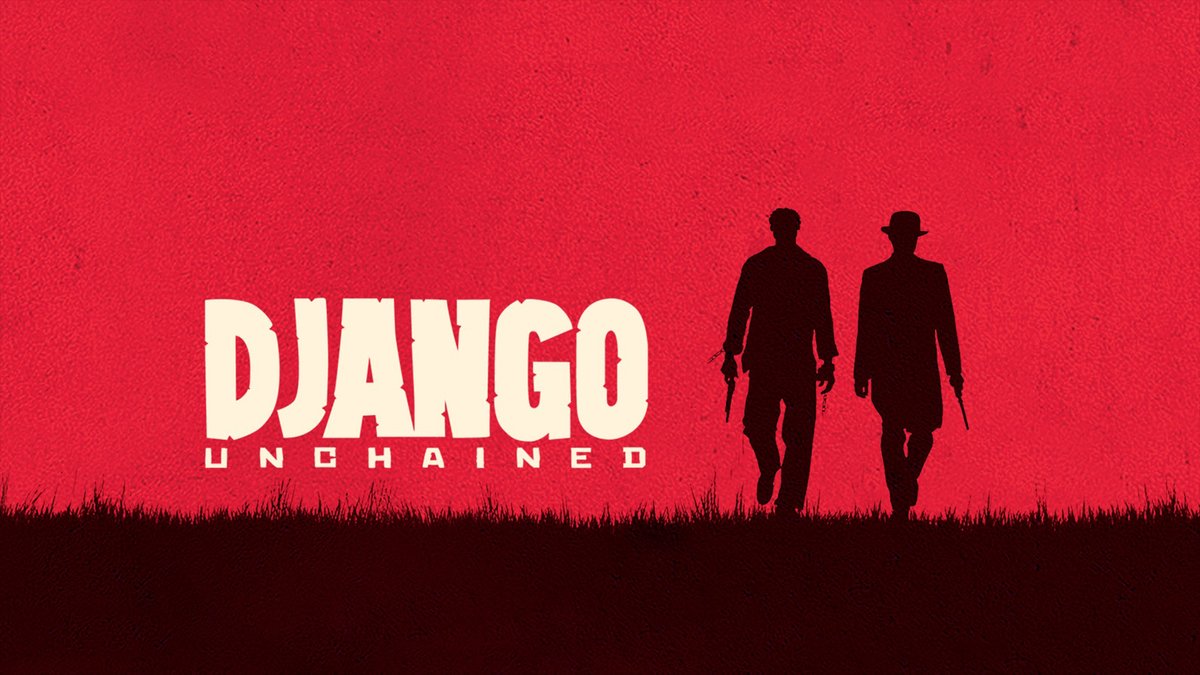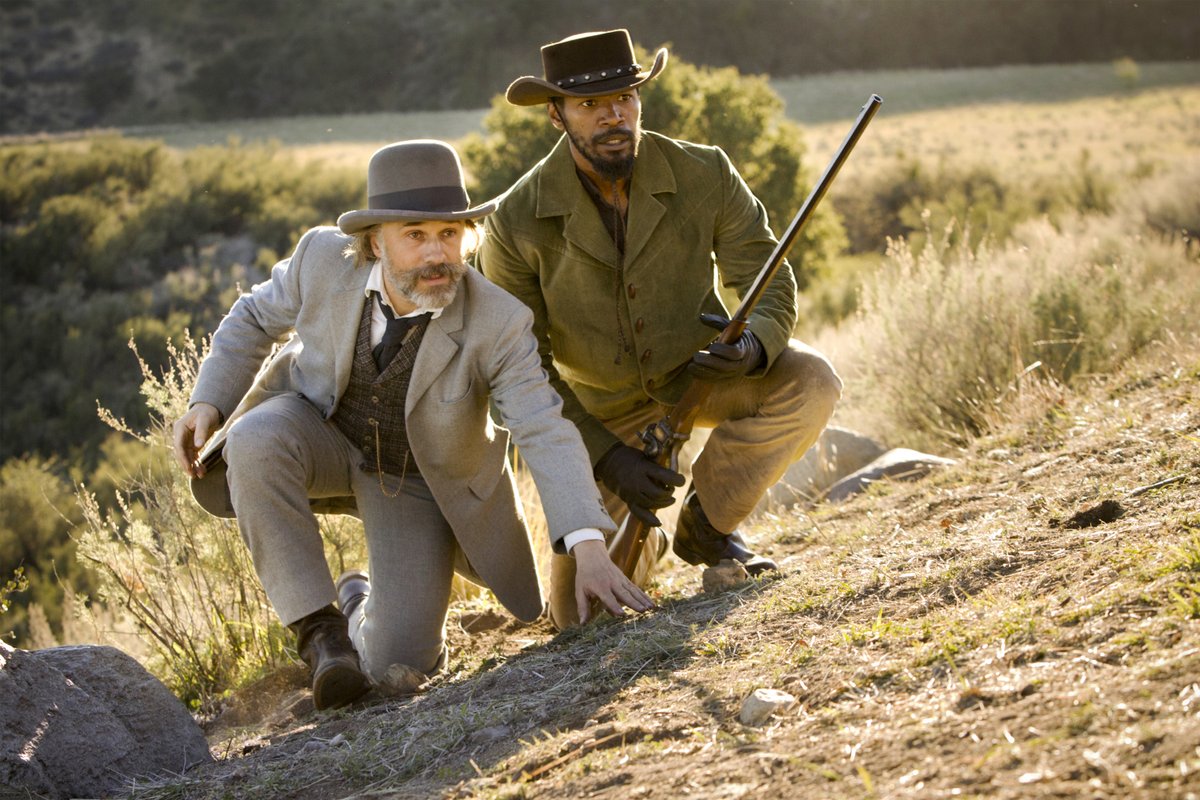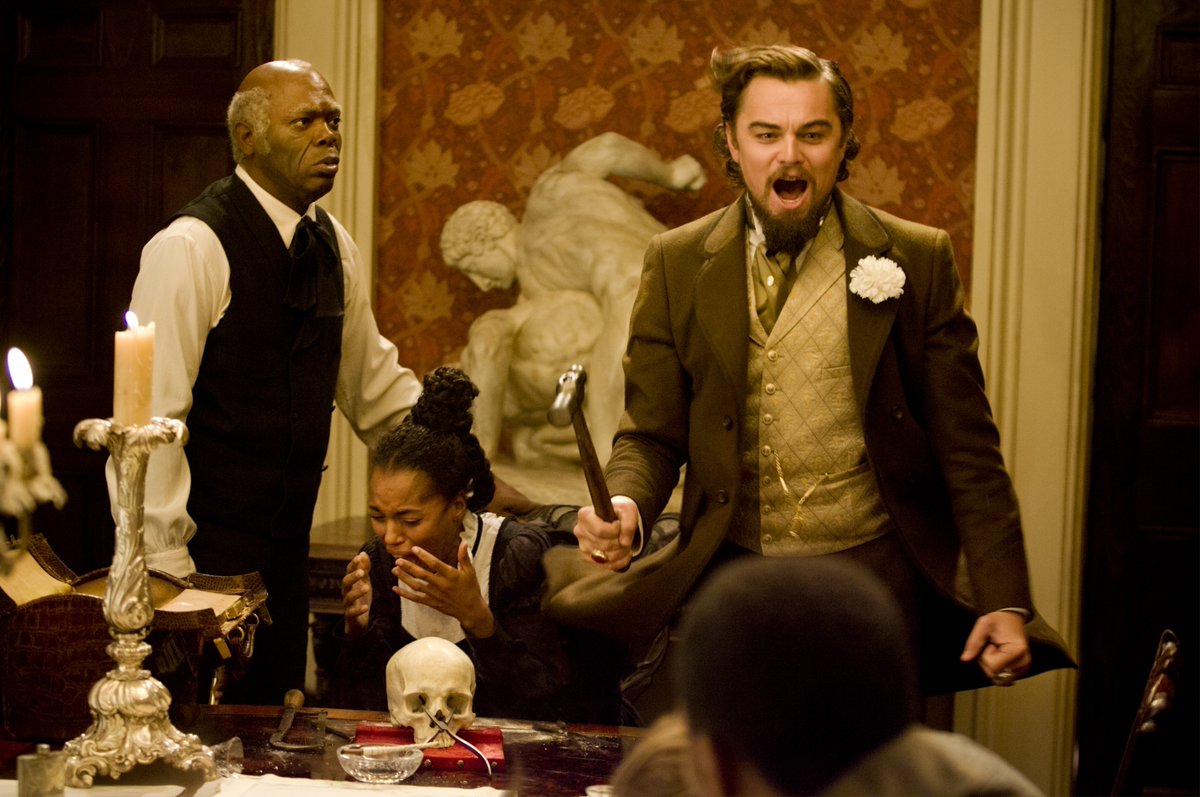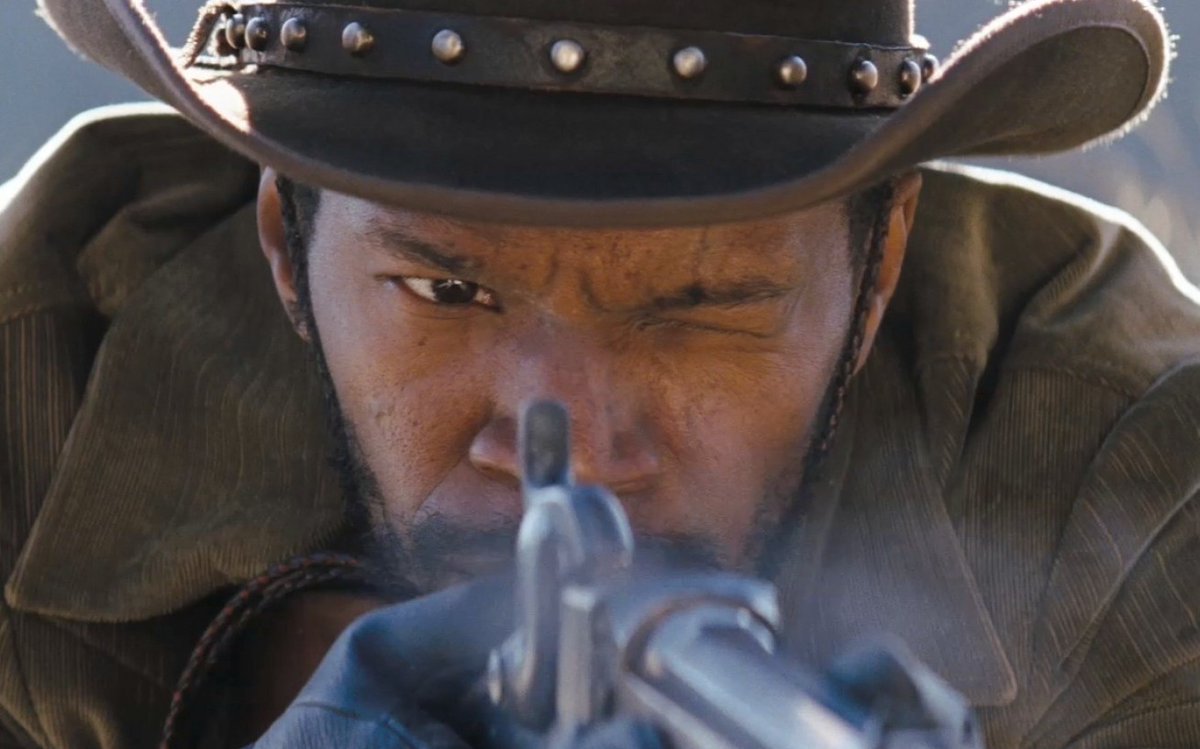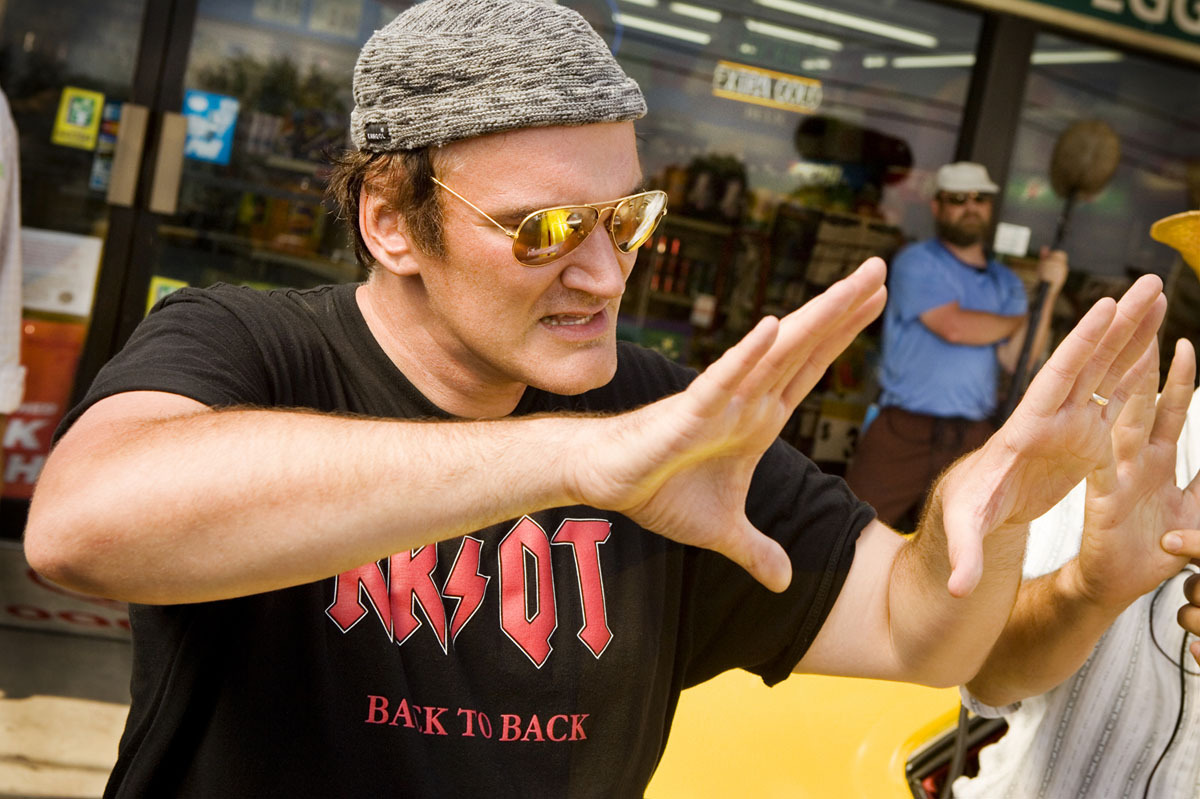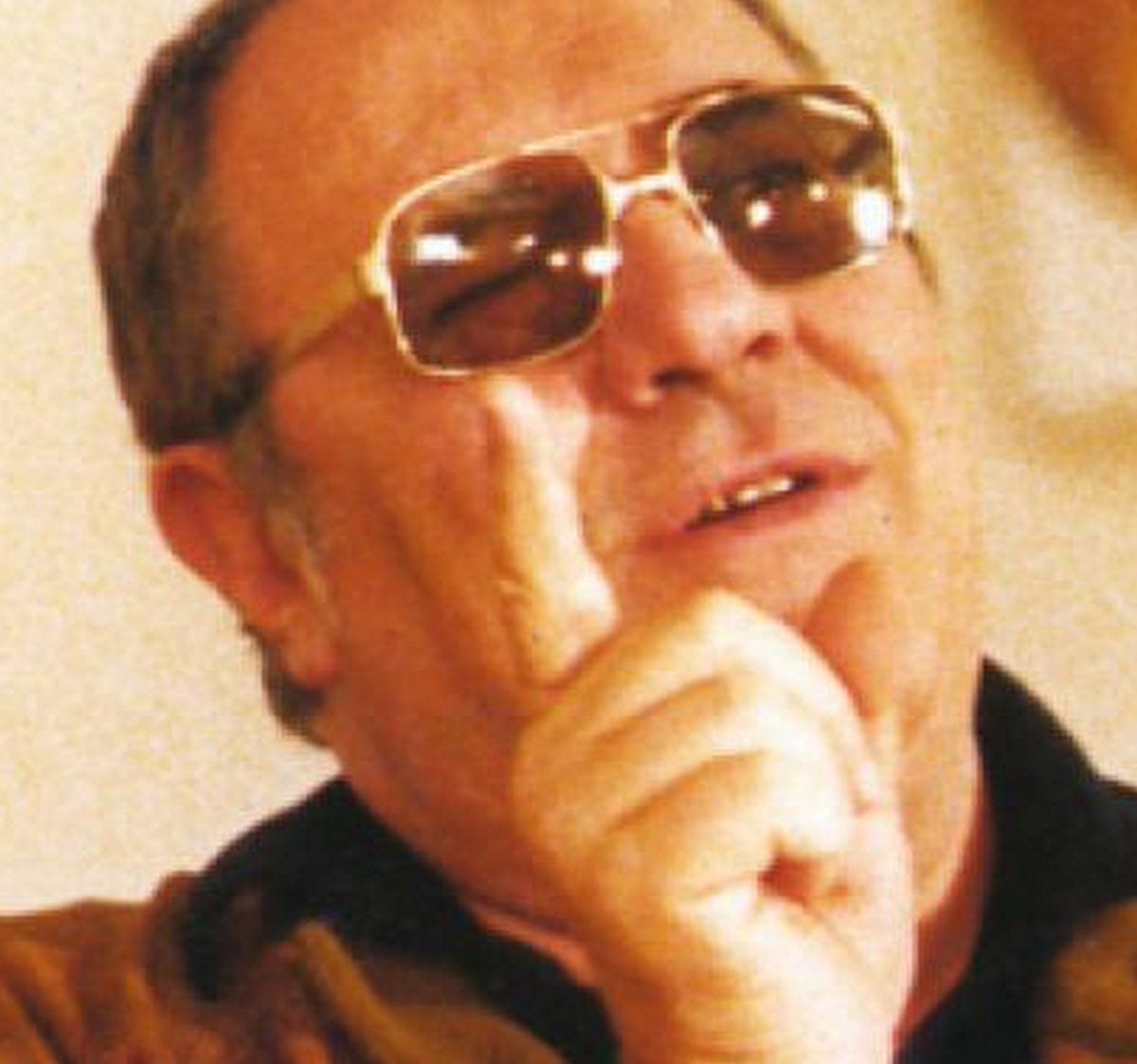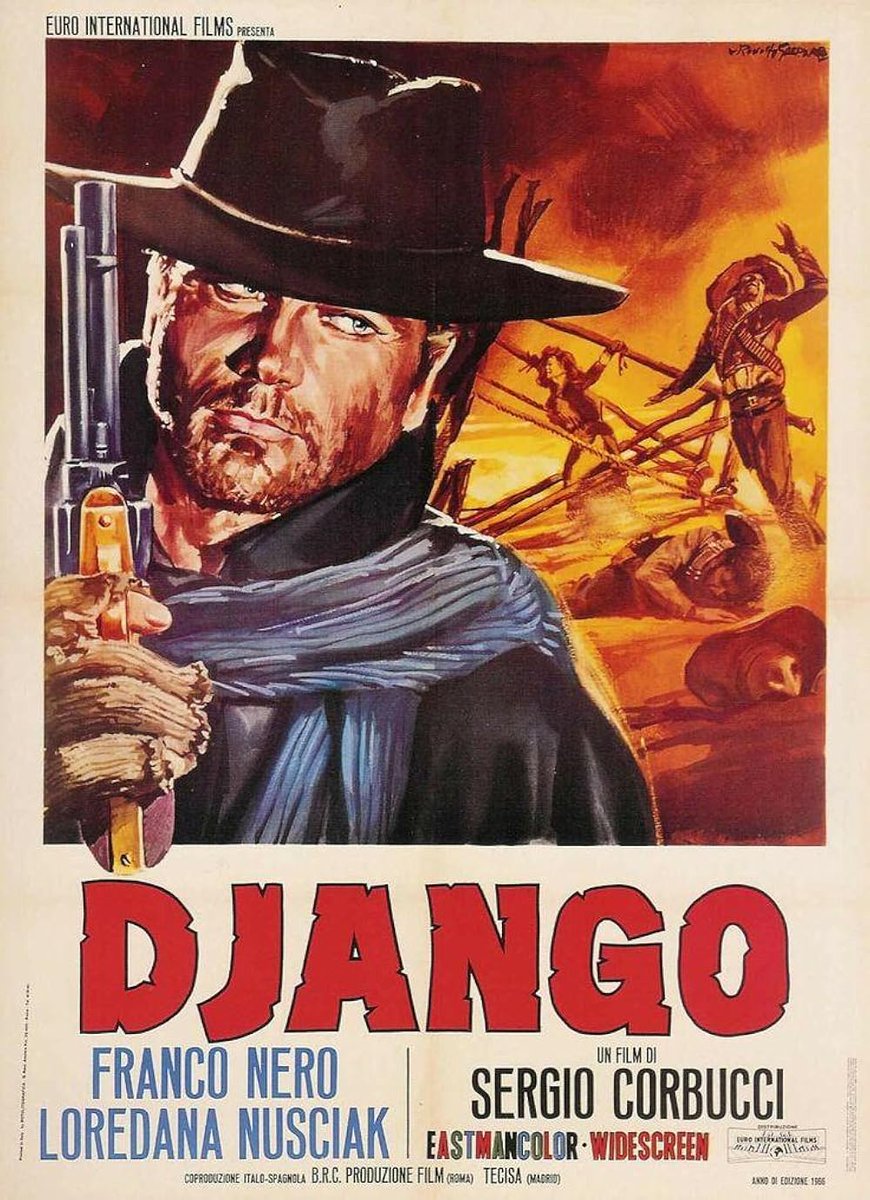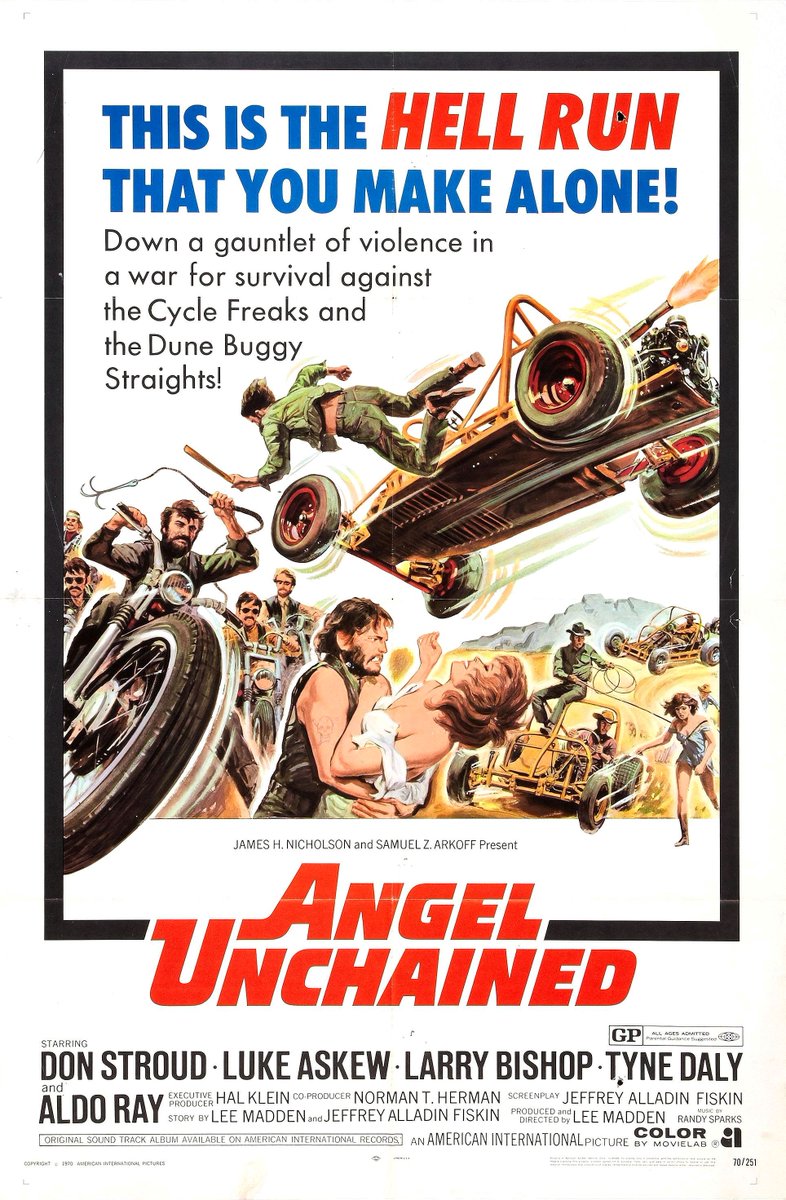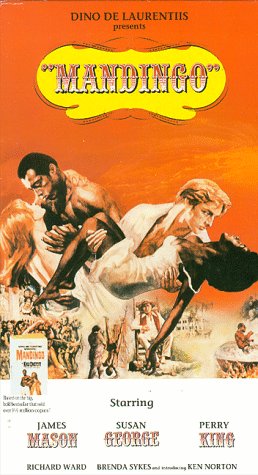ROCKY was released 48 years ago this week. The film that launched the career of Sylvester Stallone, and regarded one of the great Hollywood sports movies, the story behind the scenes will make you eat lightning and crap thunder…
1/56



1/56



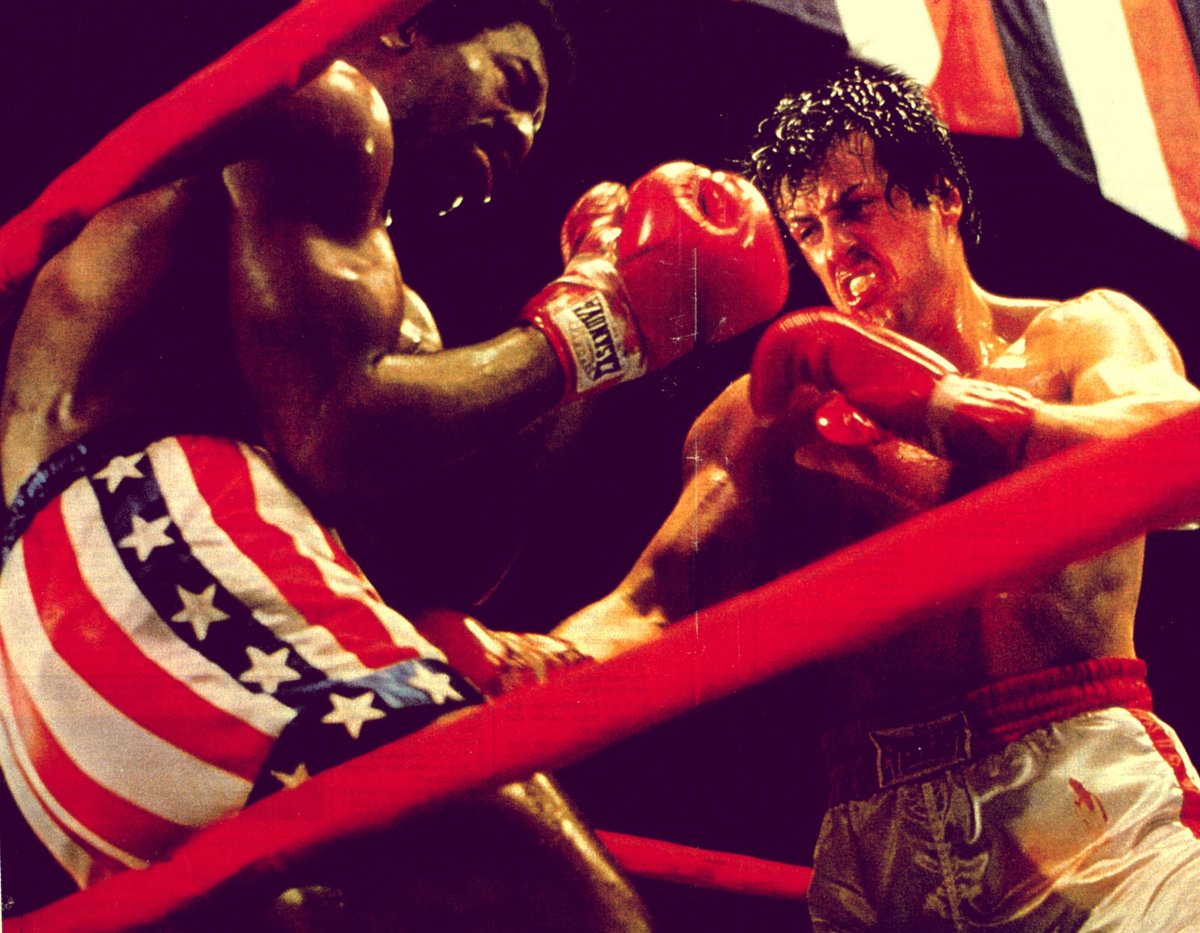
In 1975, Sylvester Stallone was an aspiring actor. Struggling to find roles beyond extras and small-time parts, Stallone was worrying how to make ends meet and sold his beloved dog. He came up with an idea – write a screenplay perfect for his acting talents.
2/56
2/56
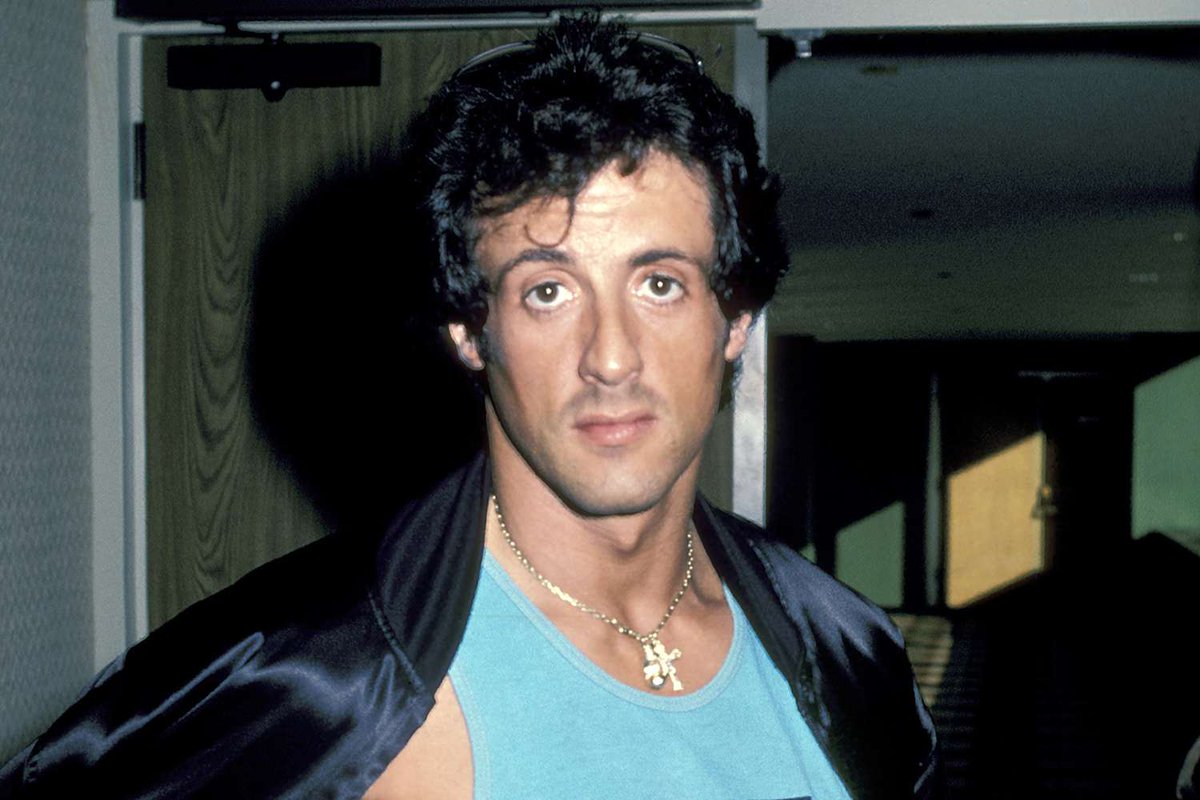
Inspiration came when Stallone was watching a heavyweight title fight between boxing legend Muhammad Ali and journeyman, Chuck Wepner. Ali won the fight but Stallone, moved by Wepner’s heart and courage, thought the event made great material for a movie script.
3/56
3/56
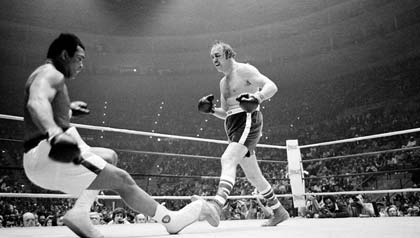
The script was called Rocky and Stallone showed it to his co-star in The Lords of Flatbush, Henry Winkler. He was about to be cast as the Fonz in Happy Days, and showed TV network ABC Stallone’s script. They loved it and bought it as a made-for-TV movie.
4/56
4/56

However, ABC wanted a complete rewrite of Stallone’s script to be done by another writer. Stallone managed to buy the rights back and secured a meeting with producers Robert Chartoff and Irwin Winkler. They said Rocky shouldn’t be a TV movie, it should be a full feature.
5/56
5/56

Chartoff-Winkler approached United Artists. They liked the script but didn’t want Stallone – an unknown actor – in the lead. They wanted Ryan O’Neal, James Caan or Burt Reynolds and offered Stallone $340k to step aside. He wouldn’t budge, though.
6/56


6/56

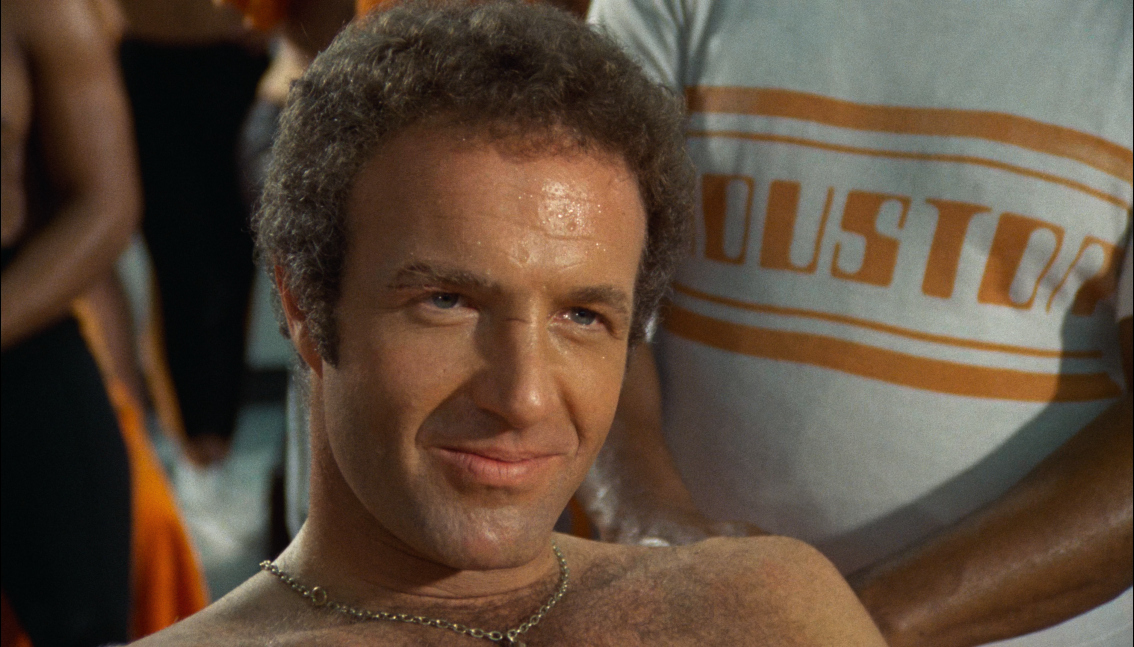

Finally, a deal was struck. UA agreed to Stallone playing Rocky, with conditions. The budget would be $1m, and Stallone would be paid $20k for the script and a $350 acting day rate. Thinking the film would be a modest hit, UA agreed to give Stallone 10% of the back end.
7/56
7/56

Chartoff-Winkler knew who they wanted to direct. Having made returns with Joe and Save The Tiger, John G. Avildsen had experience making low-budget character-driven films. He loved the underdog narrative and signed on to direct Rocky.
8/56


8/56
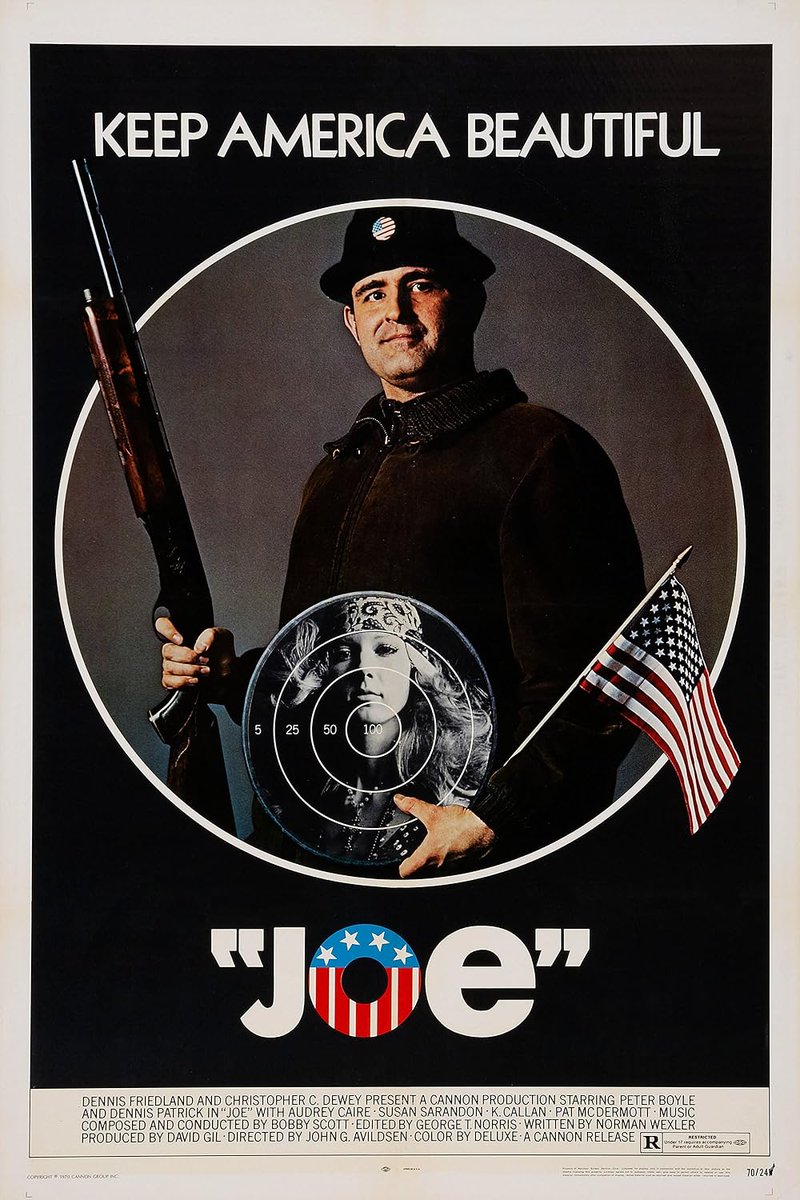


Avildsen later said he’d never seen a boxing match or boxing movie in his life, so had to do research. He went to Philadelphia (the film’s setting) to scout locations, and called it a historic “Goldilocks kind of town.”
9/56
9/56
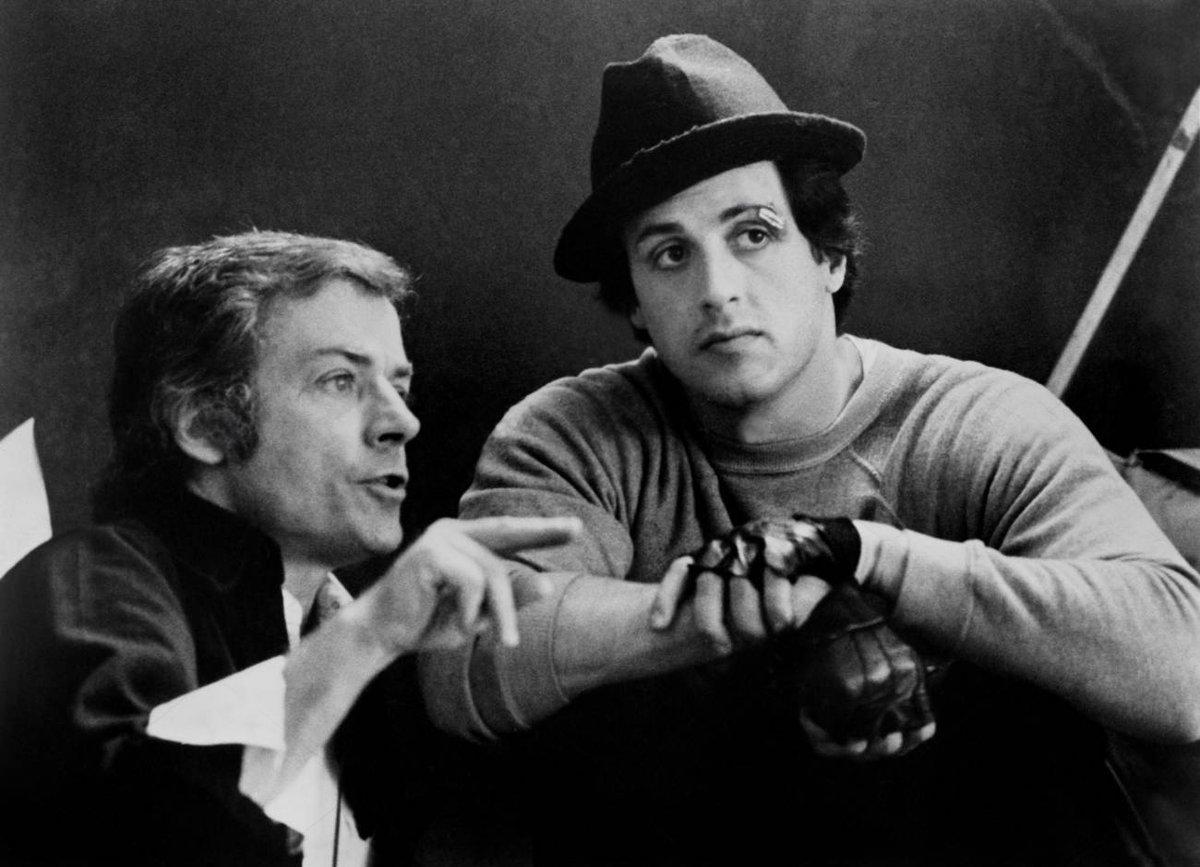
To prepare for the role, Stallone trained for months with boxing coach Jimmy Gambina, who also served as the film’s technical advisor and played a trainer named Jimmy in Mick’s gym. Sly also studied the fighting styles of Rocky Marciano and Ezzard Charles.
10/56


10/56
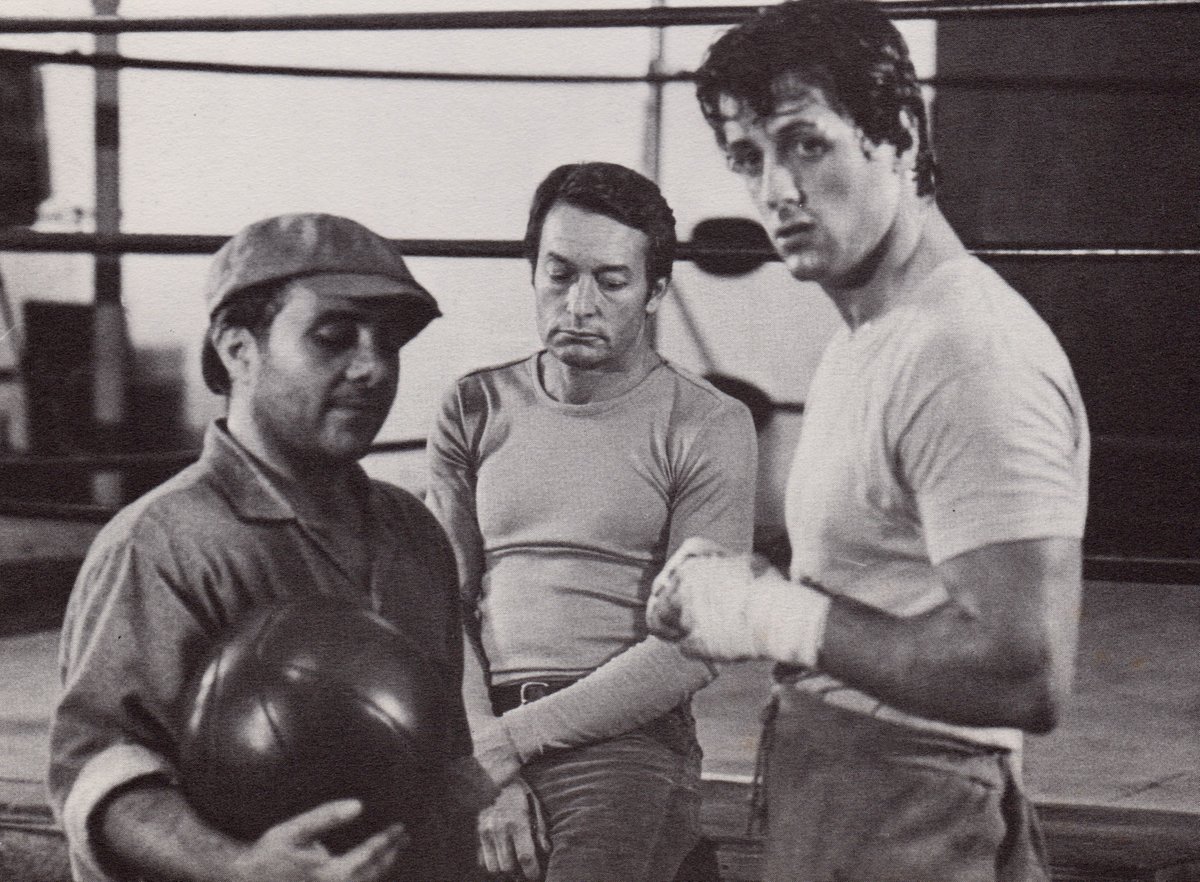

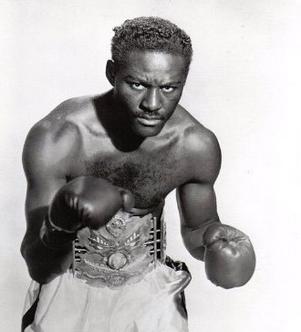
Rocky’s love interest is Adriana ‘Adrian’ Pennino. Susan Sarandon auditioned for the role but was deemed too pretty. Carrie Snodgress was then reportedly cast but a salary couldn’t be agreed. Finally, Talia Shire auditioned late in the process and was quickly cast.
11/56


11/56

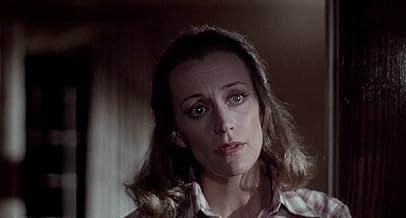
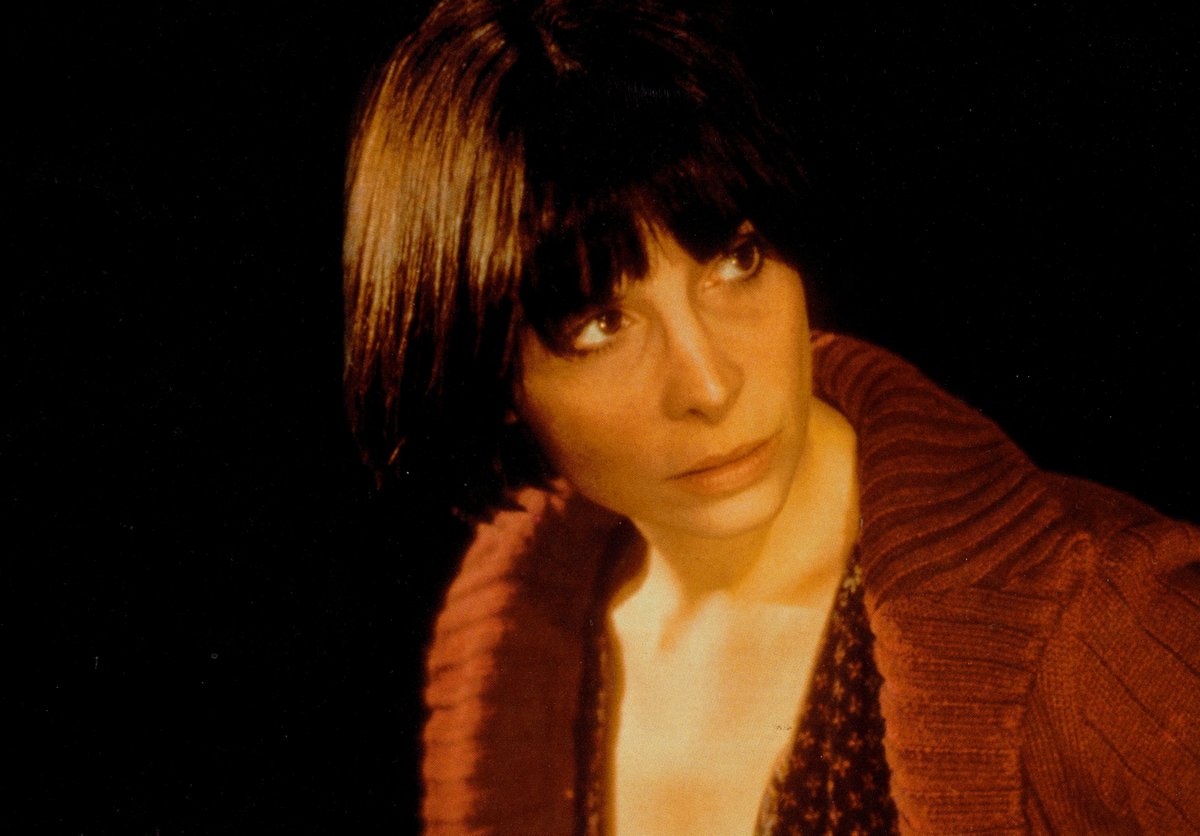
Shire later said she’d just had a baby when she was sent the script: “I had no idea who this person was who wrote it. But it was brilliant—the language, the written text of that piece, the poetry that Sylvester composed. He had truly created a folk myth.”
12/56
12/56

Shire was also given a small amount of cash from the production budget to visit a thrift store to come up with Adrian’s signature hat, glasses and coat look. The rest of Adrian’s costumes were Shire’s own clothes.
13/56

13/56
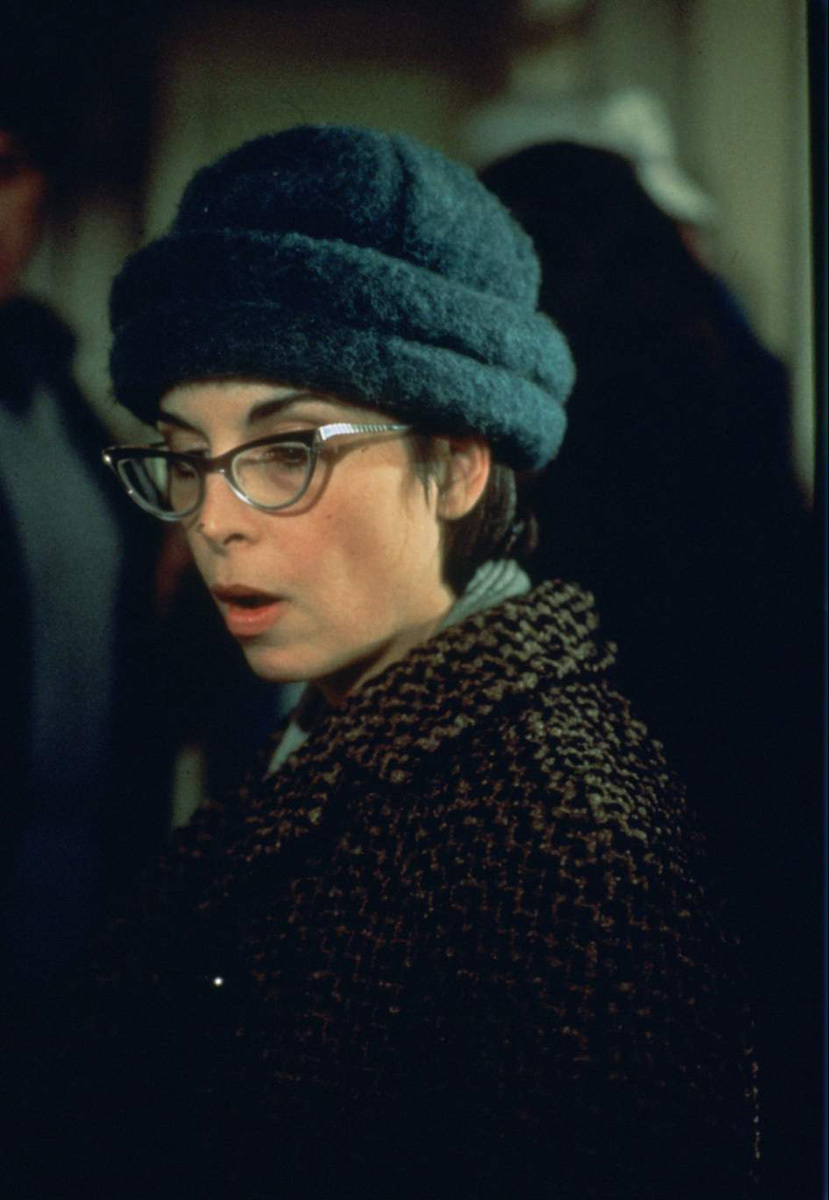
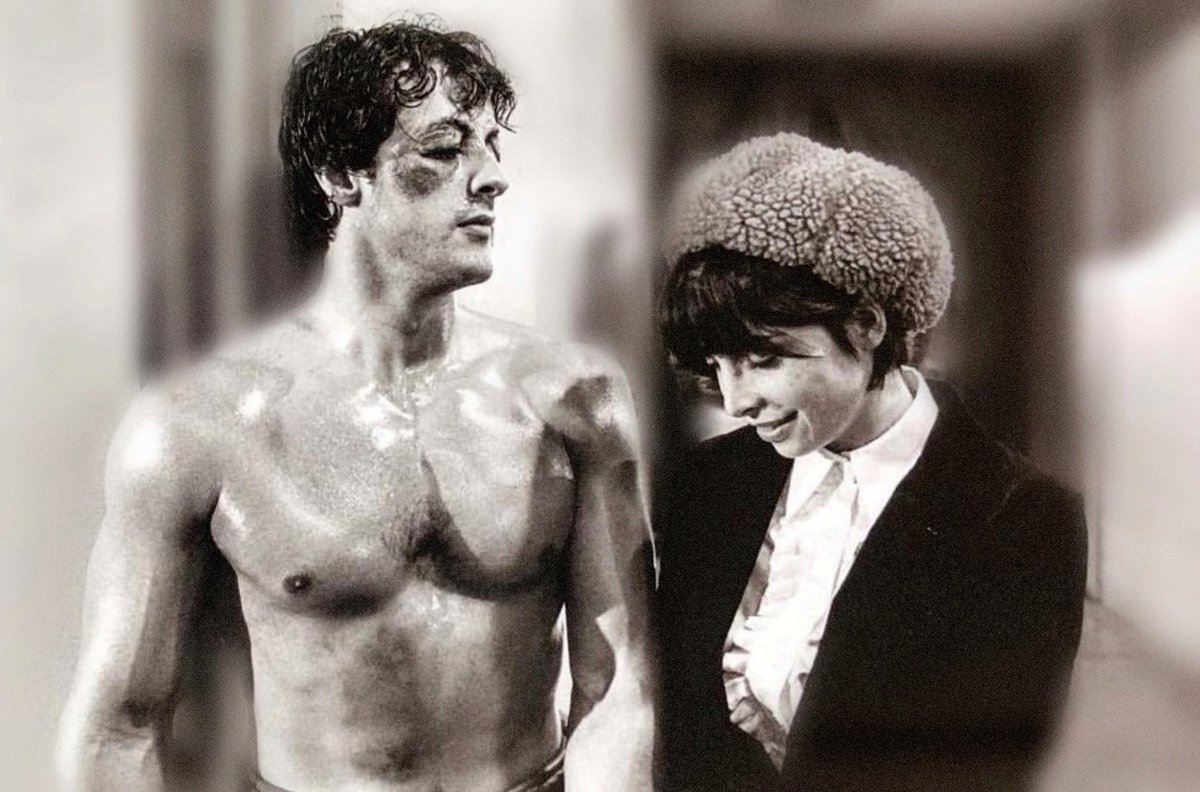
Adrian’s older brother (and Rocky’s best pal) is Paulie. Stallone said he’d been thinking about Harvey Keitel in the role when he wrote the script, but the producers wanted Burt Young. He was sent the script and singed on, calling it “a fairy tale for grown-ups.”
14/56

14/56

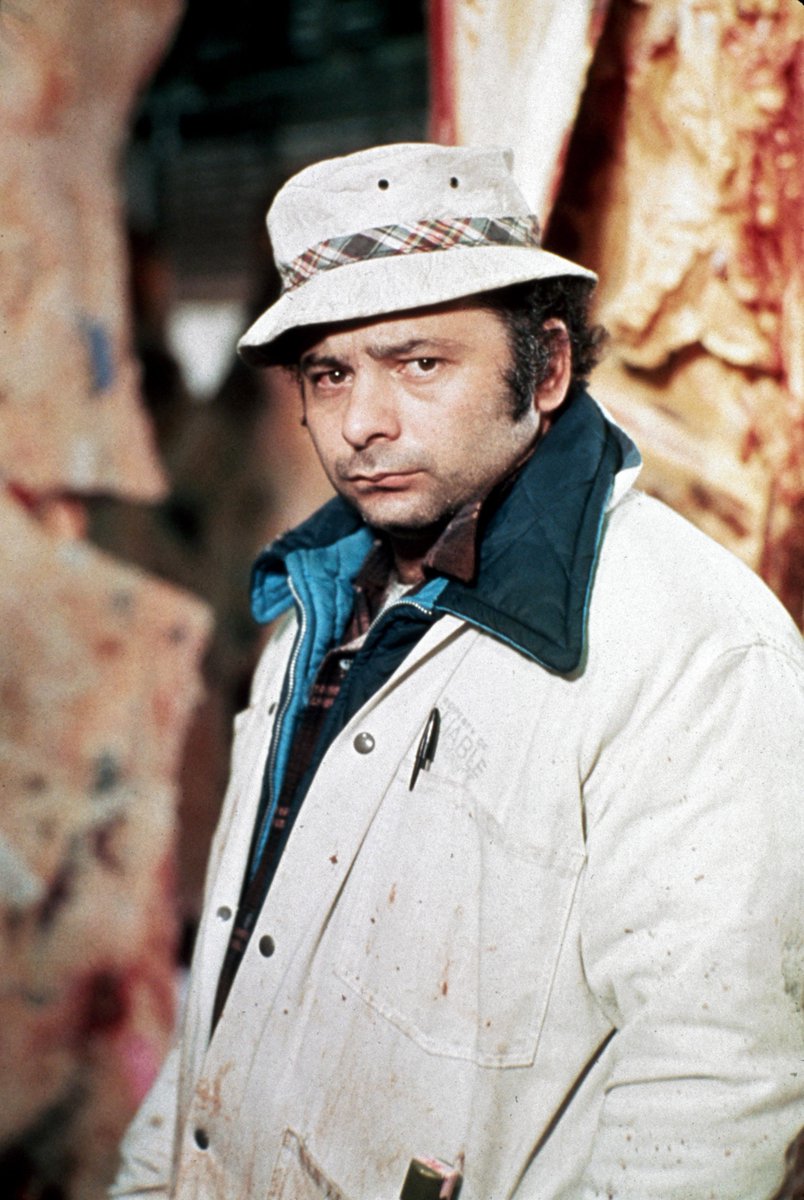
Young went method for the part. He dowsed his neck in sweet Vermouth so he would smell like cheap wine. And, deciding Paulie had arthritis, Young also dipped his hands in turpentine before filming to make his skin feel tight.
15/56

15/56

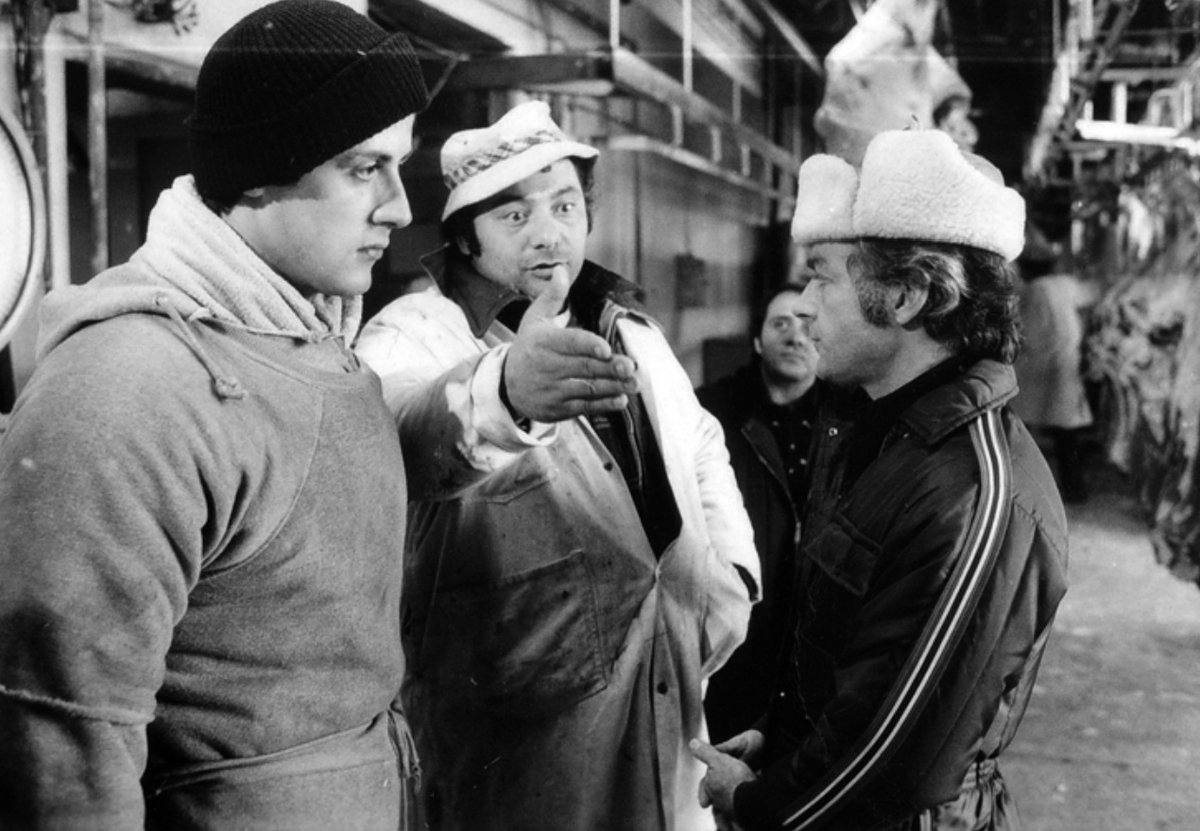
In the part of Rocky’s charismatic coach, Mickey Goldmill, the producers were keen on Lee Strasberg – but salary negotiations broke down. Instead, Burgess Meredith (known as The Penguin on TV hit Batman) was cast.
16/56

16/56


When Meredith auditioned, they used the scene when Rocky loses his locker. Meredith ad-libbed some lines, including the moment Mickey asks Rocky if he ever thought about retiring. Avildsen loved the line so much it made it into the film.
17/56

17/56


So that Mickey looked like he’d been through many brutal boxing bouts, Meredith was made up. He wore a prosthetic cauliflower ear and, to make his nose appear disfigured, had a tube inserted up his nostril.
18/56
18/56

Rocky’s foe in the film is world champion, Apollo Creed. He was loosely based on real boxing champ Ken Norton, and Norton was in the frame to play him at one point. When Norton pulled out to appear on TV show Superstars, Carl Weathers was cast.
19/56

19/56
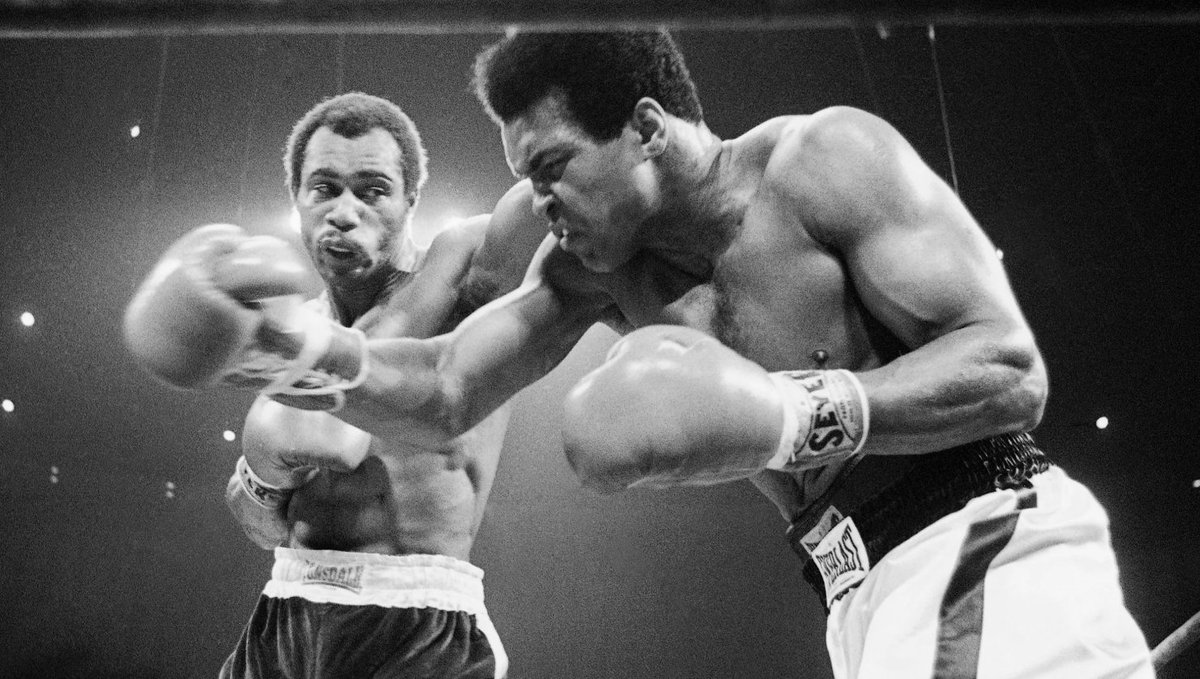
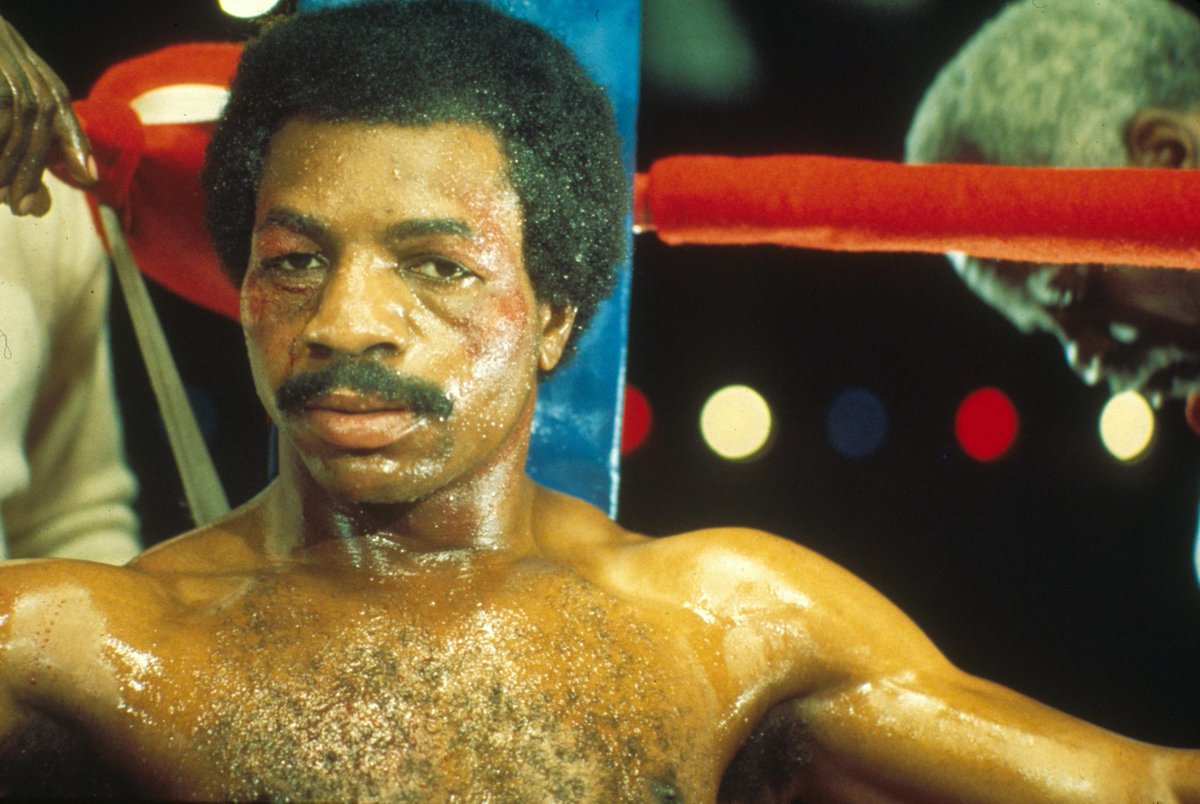
Weathers’ audition involved a sparring bout with Stallone, during which Weathers clocked Sly on the chin and asked to audition with “a real actor.” When he heard Stallone was playing Rocky, Weathers said “Maybe he’ll get better” and was offered the part there and then.
20/56
20/56

Some minor roles were played by Stallone’s family members. His brother Frank Jr plays a street corner singer; his Dad, Frank Sr, is the timekeeper at the fight at the end; and Stallone’s then-wife, Sasha, was the still photographer on set.
21/56

21/56
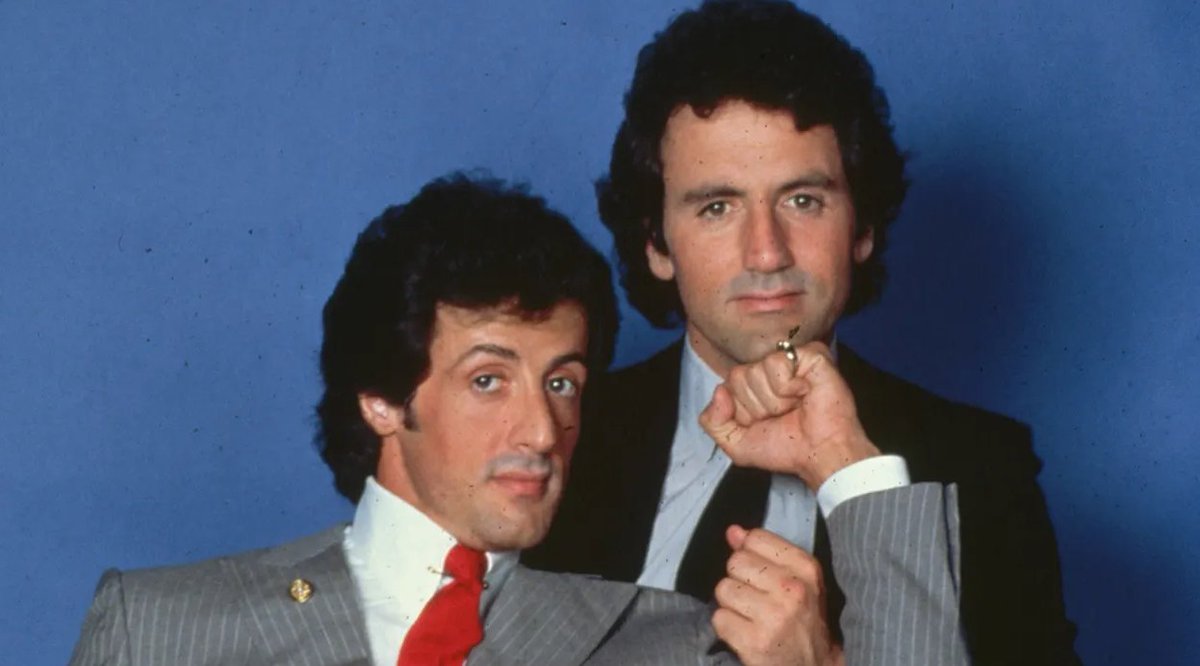

Also, Rocky’s dog, Butkus, was Stallone’s real dog mentioned above. He’d sold Butkus for $40 and, after selling the screenplay, ended up buying him back for $3000.
22/56
22/56

Originally, the character was called Robert Balboa. Taking influence from boxing legend Rocky Marciano though, Stallone changed the first name to match.
23/56

23/56


Rocky’s nickname ‘The Italian Stallion’ was created for the film. But, after the film’s success, a 1970 soft-core porn film Stallone starred in called The Party At Kitty And Stud’s was re-released, now named Italian Stallion.
24/56
24/56

Stallone’s first draft was written in 3 and a half days but was nowhere near what we see on screen. After 9 major rewrites, only about 10% of the original draft remained. In that version, Adrian was Jewish and lived with her mother who hated Rocky.
25/56
25/56

Chuck Wepner (one of Stallone’s inspirations) went on to sue Sly in 2003, settling out of court for an undisclosed fee. There was a film made of Wepner’s life, simply called Chuck, which covers his frustration and anger of the Rocky movies.
26/56

26/56

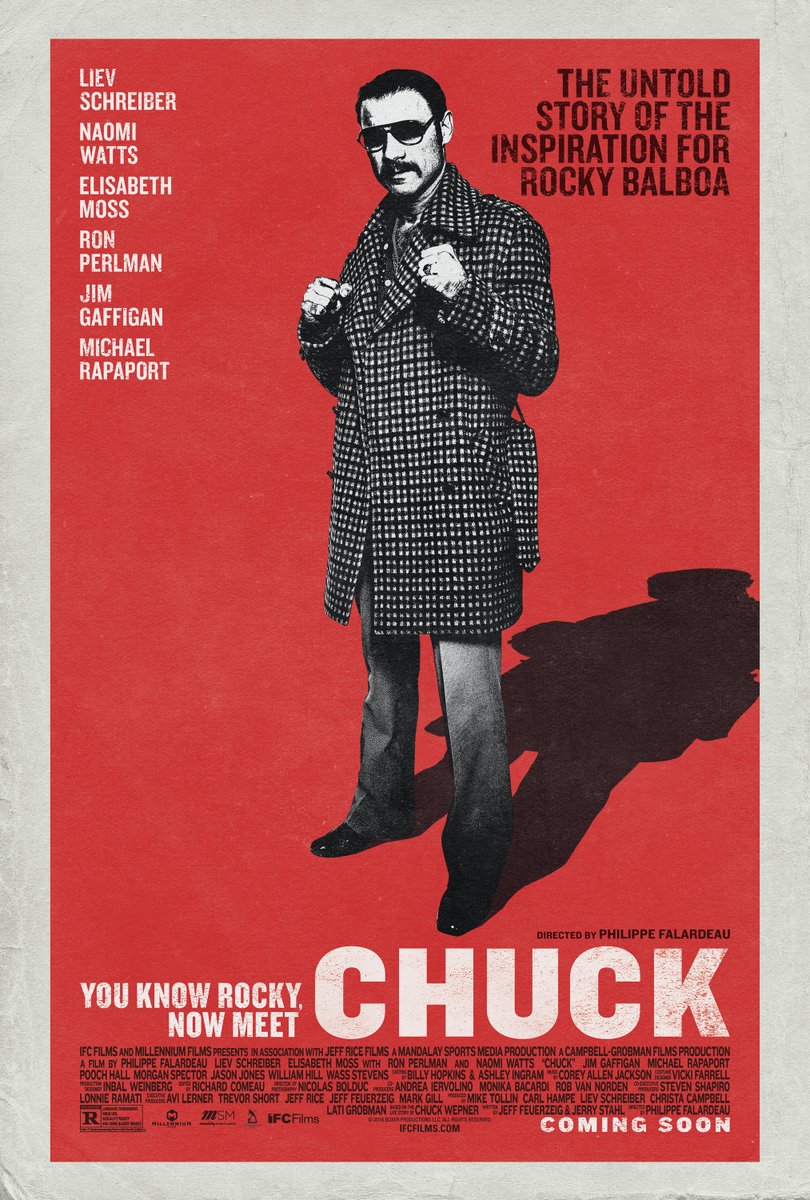
James Crabe had just worked with Avildsen on W.W. and the Dixie Dancekings and was hired as Director of Photography. The movie was shot in just 28 days.
27/56

27/56


All exterior shots were captured with natural lighting, mostly due to the small budget. Stallone said they would use the environment and try and catch ships sailing down the river or trains moving on tracks in the background.
28/56

28/56

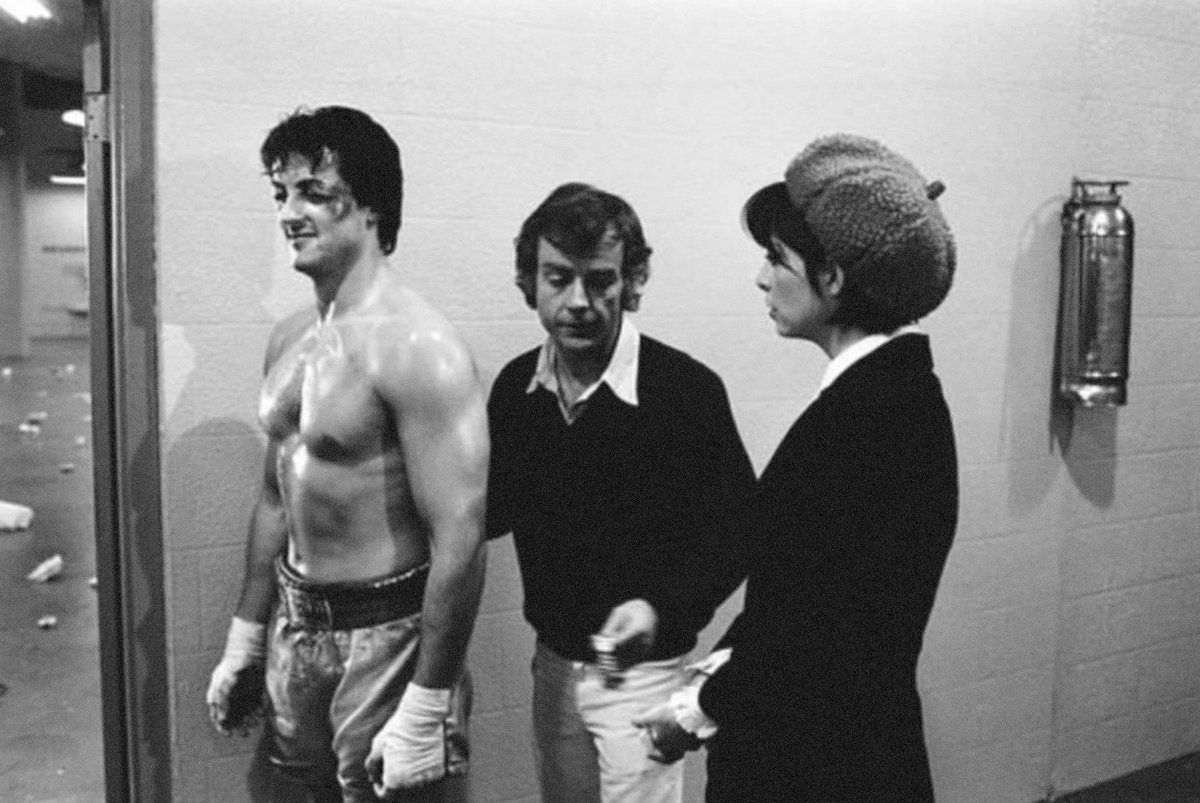
Steadicam inventor Garrett Brown played a role too. He’d previously filmed some proof-of-concept of his girlfriend running up and down the stone steps at the Philadelphia Museum of Art. Avildsen wanted to know how it was done, and brought Brown in.
29/56

29/56


The first choice to score the film was Talia Shire’s husband, David. When an agreement couldn’t be reached though, United Artists hired unknown spaghetti western ghostwriter Bill Conti, paying him $25,000 to work on his first feature.
30/56

30/56


Stallone later said he wanted “passion music… I was impossible to satisfy. So I thought.” After hearing Conti’s legendary theme (Gonna Fly Now) for the first time, Stallone was on his feet cheering.
31/56

31/56


Avildsen later said “Without the music, it wouldn’t have worked.” Gonna Fly Now was nominated for Best Original Song at the Oscars went to number 1 in the charts in the summer of 1977.
32/56
32/56

Winkler-Chartoff wanted to shoot the film in Los Angeles to keep down production costs – especially since they were personally liable for any budget overruns. Avildsen and Stallone were adamant about shooting in Philadelphia though, and the producers agreed.
33/56

33/56


With a tiny budget, there were no trailers or catering during filming, the cast and crew lived on a pizzas and cheeseburgers for 4 weeks. And they had no permits to film anywhere, so the crew would often ride round Philadelphia in a van, jump out and shoot.
34/56

34/56


During the opening exchange between Rocky and Tony Gazzo, Gazzo pulls out an inhaler, but this wasn’t part of the script. Actor Joe Spinell had asthma and needed a hit. Avildsen liked the authenticity of it and decided to keep it in.
35/56

35/56


Rocky and Adiran’s first date was written to take place in a restaurant but Avildsen wanted the characters to move around. Stallone re-wrote it to take place at the ice rink. It was meant to have 300 extras but, with little money, it became set when the rink was closed.
36/56

36/56


Stallone couldn’t actually skate very well, so Avildsen suggested that Rocky jog alongside Adrian skating. And the majority of the written dialogue was discarded, leaving the uncomfortable first date silences.
37/56
37/56

Adrian’s reluctance to kiss Rocky here wasn’t scripted, Talia Shire had the flu at the time of filming, and didn’t want to do it.
38/56
38/56

Rocky’s turtles, Cuff and Link, were adopted as pets by Stallone and lived very long lives. They showed up in other films, including Creed II in 2018.
39/56

39/56


Stallone’s New York apartment at the time didn’t have a stove so the scene where Rocky downs raw eggs was no problem for him to film. And he spent so long punching meat for the meat locker scene that he permanently flattened his knuckles.
40/56
40/56

Rocky’s emotionally-charged speech when Mickey storms out of his apartment was completely improvised by Stallone, and influenced by the bathroom in the apartment where they filmed, which really did stink.
41/56

41/56


Philadelphians may notice that, in the training montage, Rocky covers about 20 miles in a couple of minutes. And most of the background in the scene weren’t official extras, just passers-by who joined in – including the stall owner who throws an orange at Rocky.
42/56


42/56


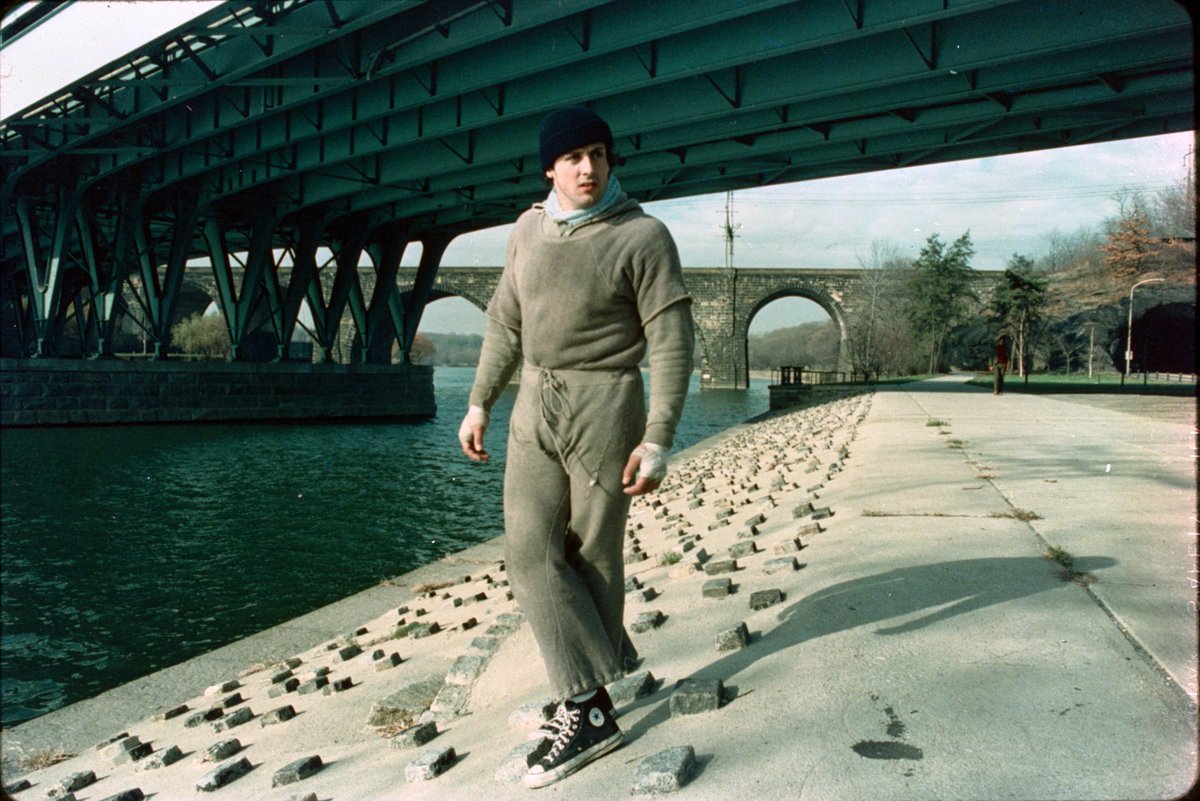
Stallone actually got injured filming the training montage. He pulled a tendon and ended up being taken to hospital on a wheelbarrow.
43/56
43/56

Rocky’s iconic run up the Philadelphia Museum Of Art steps was apparently inspired by legendary boxer Smokin’ Joe Frazier’s pre-fight routine. Frazier has a cameo in the film as a guest of honour before the climactic fight.
44/56

44/56
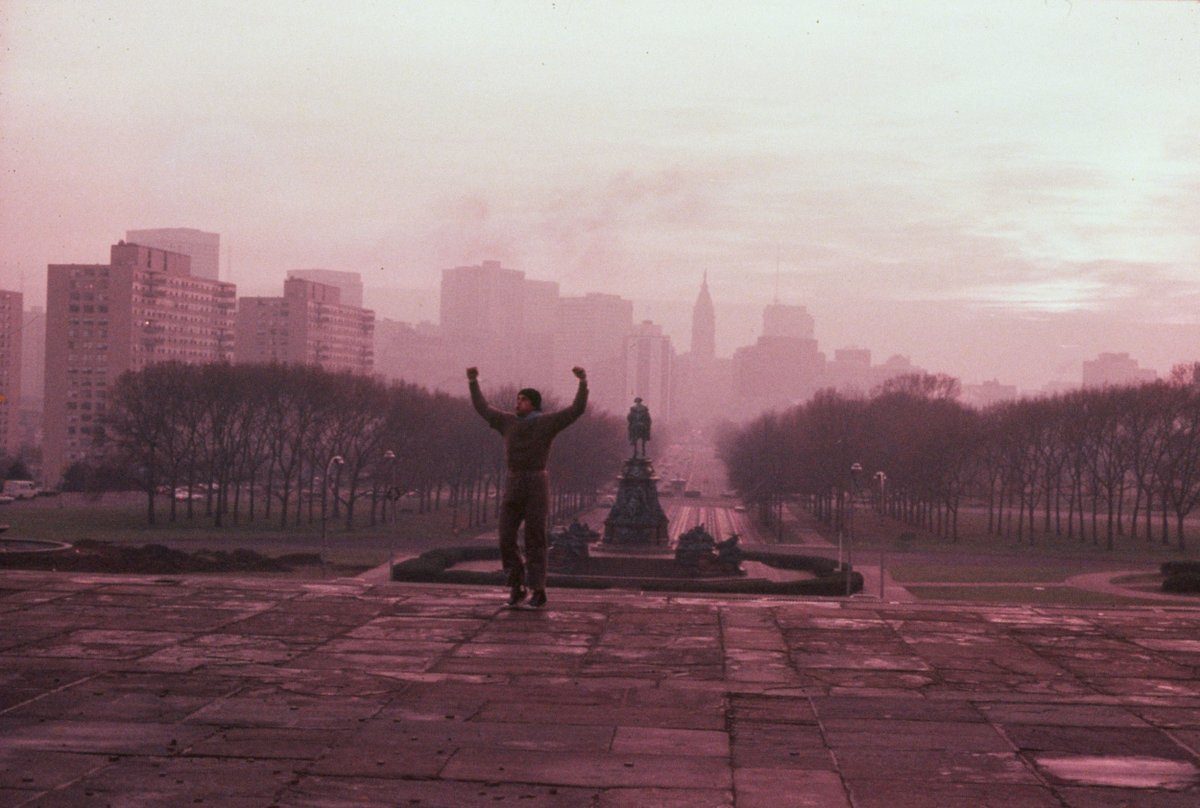

The mistake on the giant posters made for the big fight was genuine, so a scene was re-written where Rocky goes to the stadium and points it out to the promoter, George Jergens. Avildsen said Jergens’ dismissiveness reinforced how little they thought of Rocky.
45/56

45/56


The private moment the night before the fight when Rocky tells Adrian he knows he can’t beat Apollo was at risk of being cut until Stallone said it was the most importance scene in the film. He later said he was so nervous that he got drunk before filming it.
46/56
46/56
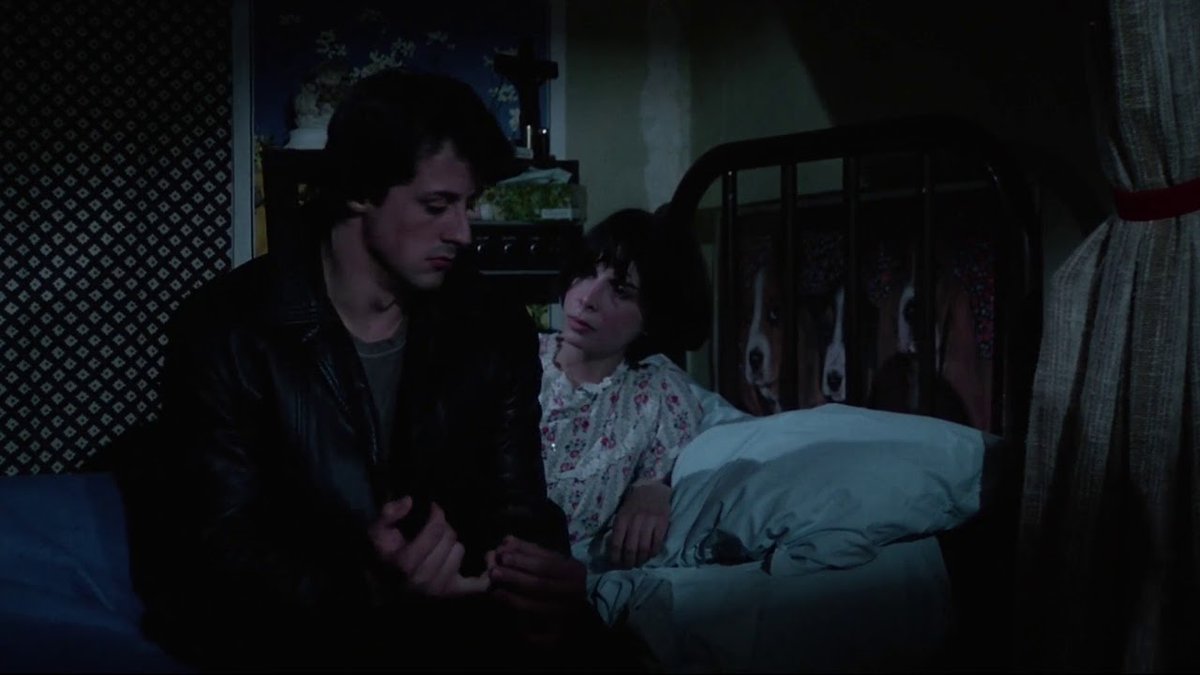
The gag that the robe that Rocky wears is too big for him wasn’t in the script. The costume department mistakenly sent a robe, in Stallone’s words, “built for Godzilla.” The script was re-written to accommodate it.
47/56
47/56

The final fight wasn’t choreographed originally – Stallone and Weathers improvised it. Avildsen wasn’t happy with it though, so each punch ended up being meticulously plotted out in a script addendum by Stallone.
48/56



48/56




The fight was filmed at an arena in LA, not The Spectrum in Philadelphia (where it is set). To get a sizable crowd, ads were put out saying that anyone who showed up would get a free chicken dinner. 4,000 people turned up for their free food.
49/56
49/56

That still wasn’t enough to fill the 8000-seat stadium, however, so Avildsen dimmed the lights so the viewers’ attention was focused only on the ring. He also used some stock footage of crowds at Madison Square Garden and inserted them.
50/56

50/56


In one early version of the script, Rocky threw the fight and decided to get out of the boxing game and open a pet store with Adrian with his prize money. That was changed when Stallone decided it made Rocky seem unheroic.
51/56
51/56

There was a different ending shot, though. At first, Rocky met Adrian in the tunnel and they walked out hand in hand. Test audiences said it was too depressing, so it was re-shot. But that image of Rocky and Adrian was used for the poster art for the film.
52/56
52/56

Rocky was released on a staggered schedule and became a huge hit. On its $960,000 budget, it returned $225 million worldwide, making it the highest grossing film of the year by a distance of over $100 million.
53/56



53/56
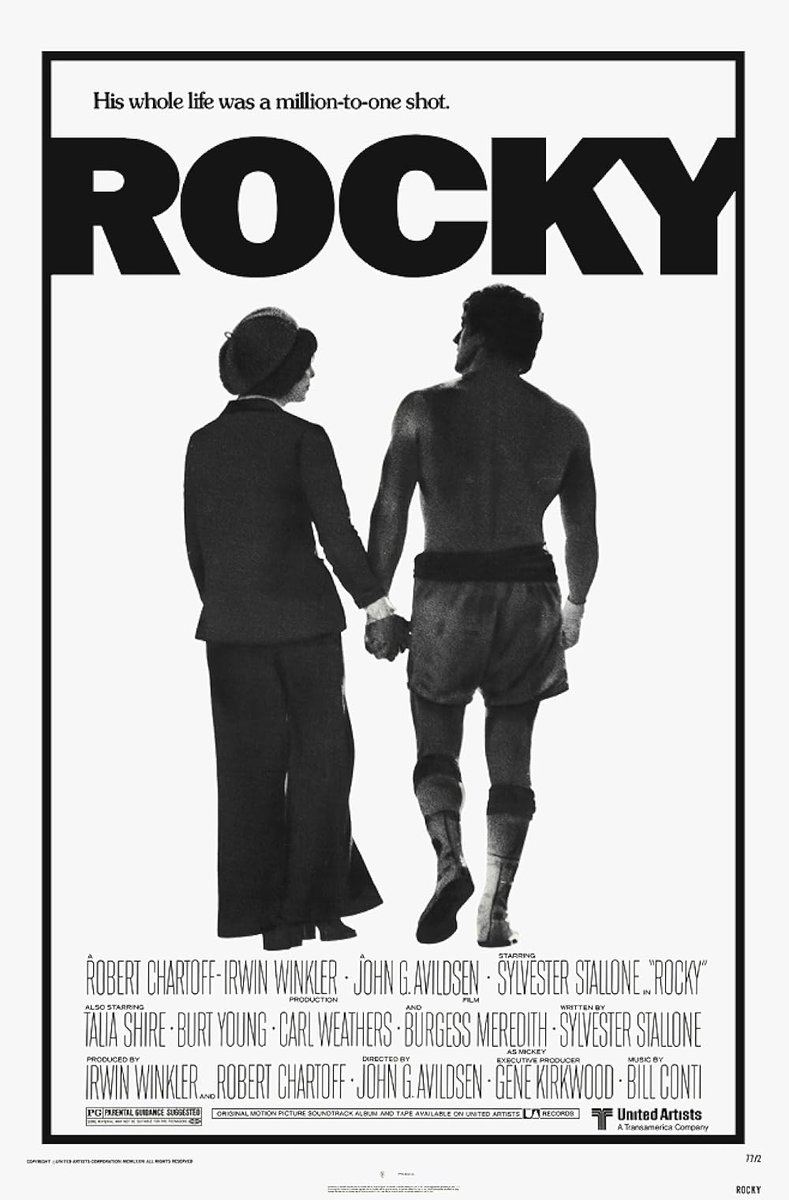
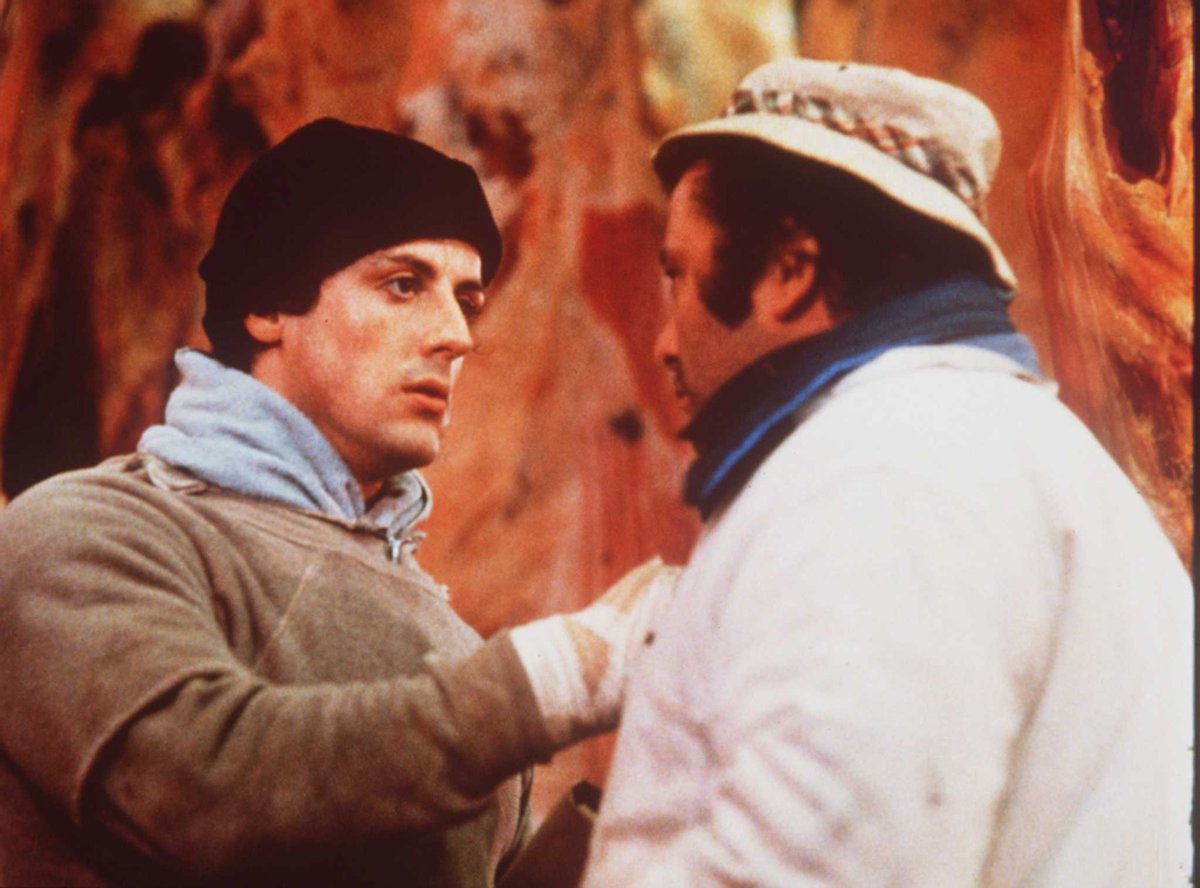

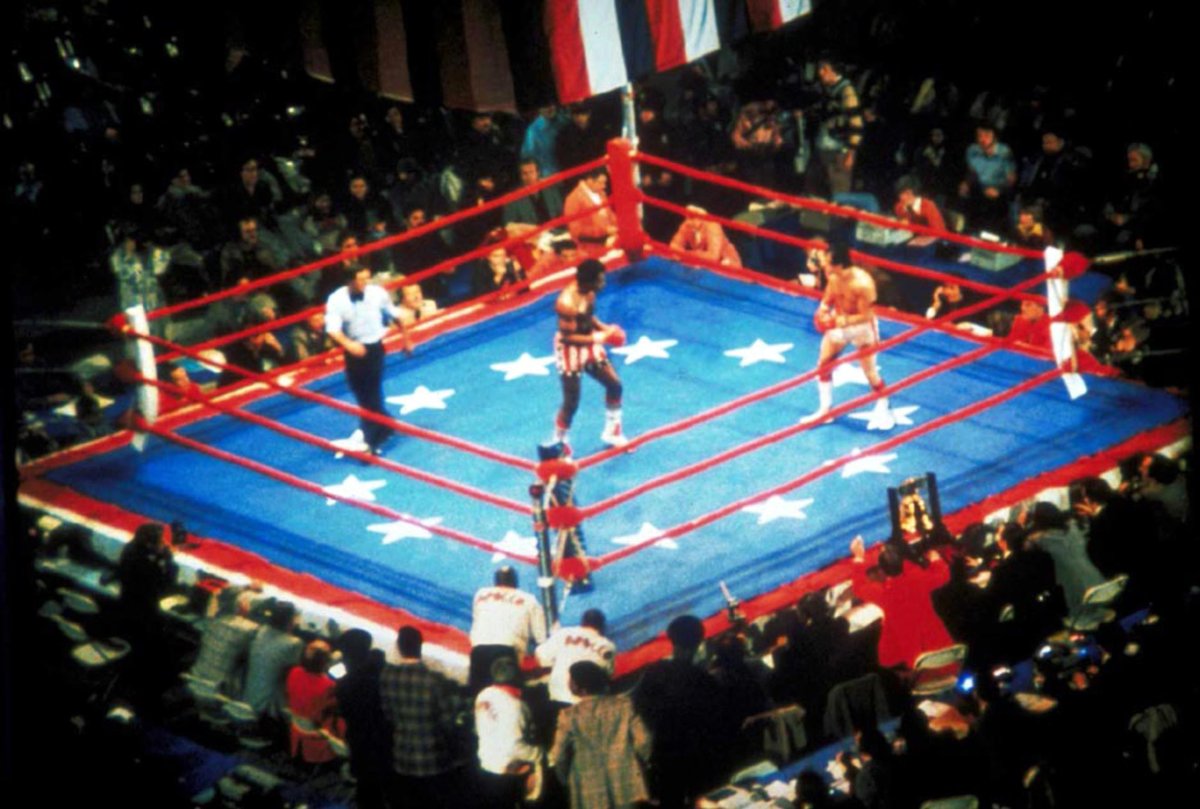
More was to come at the 1977 Academy Awards, where Rocky was nominated 10 times, winning for Best Film Editing, Best Director and Best Film, beating out the likes of Network, All The President’s Men and Taxi Driver.
54/56

54/56

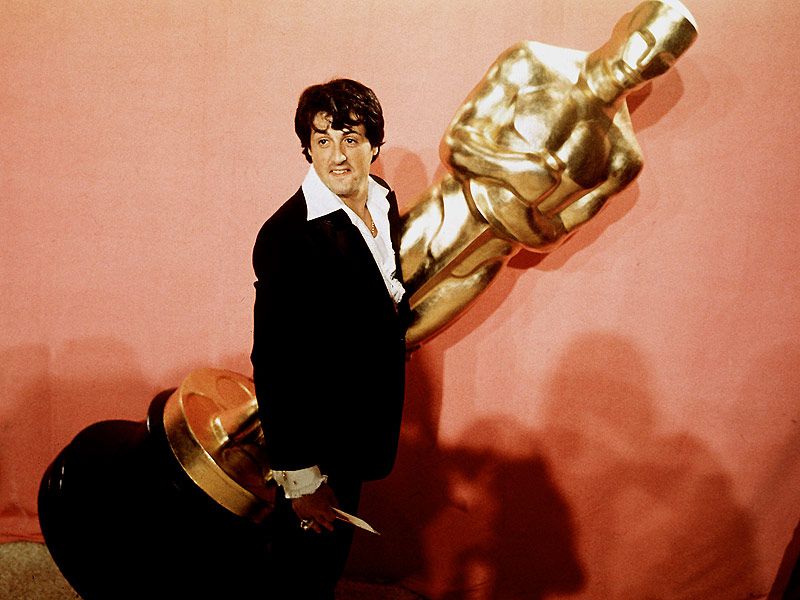
Stallone is the last person to write a solo original screenplay, star in the lead, and be Oscar-nominated for both. The only other to do so was Charlie Chaplin, who invited Sly to visit him in Switzerland; Sly declined and regretted it when Chaplin died months later.
55/56

55/56
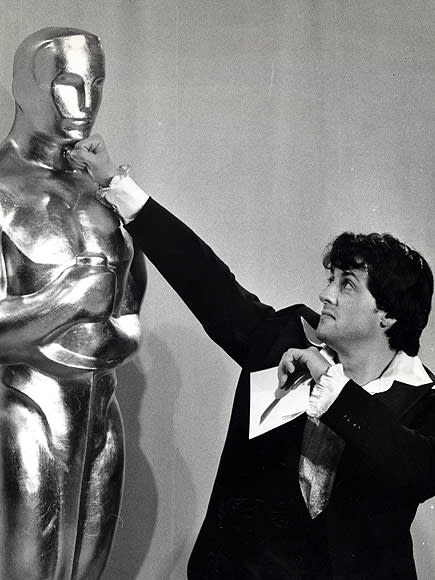

Finally… Stallone’s negotiation skills paid off handsomely. The 10% he managed to secure of the film’s gross in those original contract discussions ended up netting Sly a cool $22m.
56/56
56/56

If you liked our making of story of ROCKY, please share the opening post 😄
https://x.com/ATRightMovies/status/1865741032748450131
Our latest podcast is on THE GREAT ESCAPE. Full of big laughs and opinions so please give it a listen 😃
alltherightmovies.com/podcast/the-gr…
alltherightmovies.com/podcast/the-gr…
• • •
Missing some Tweet in this thread? You can try to
force a refresh


